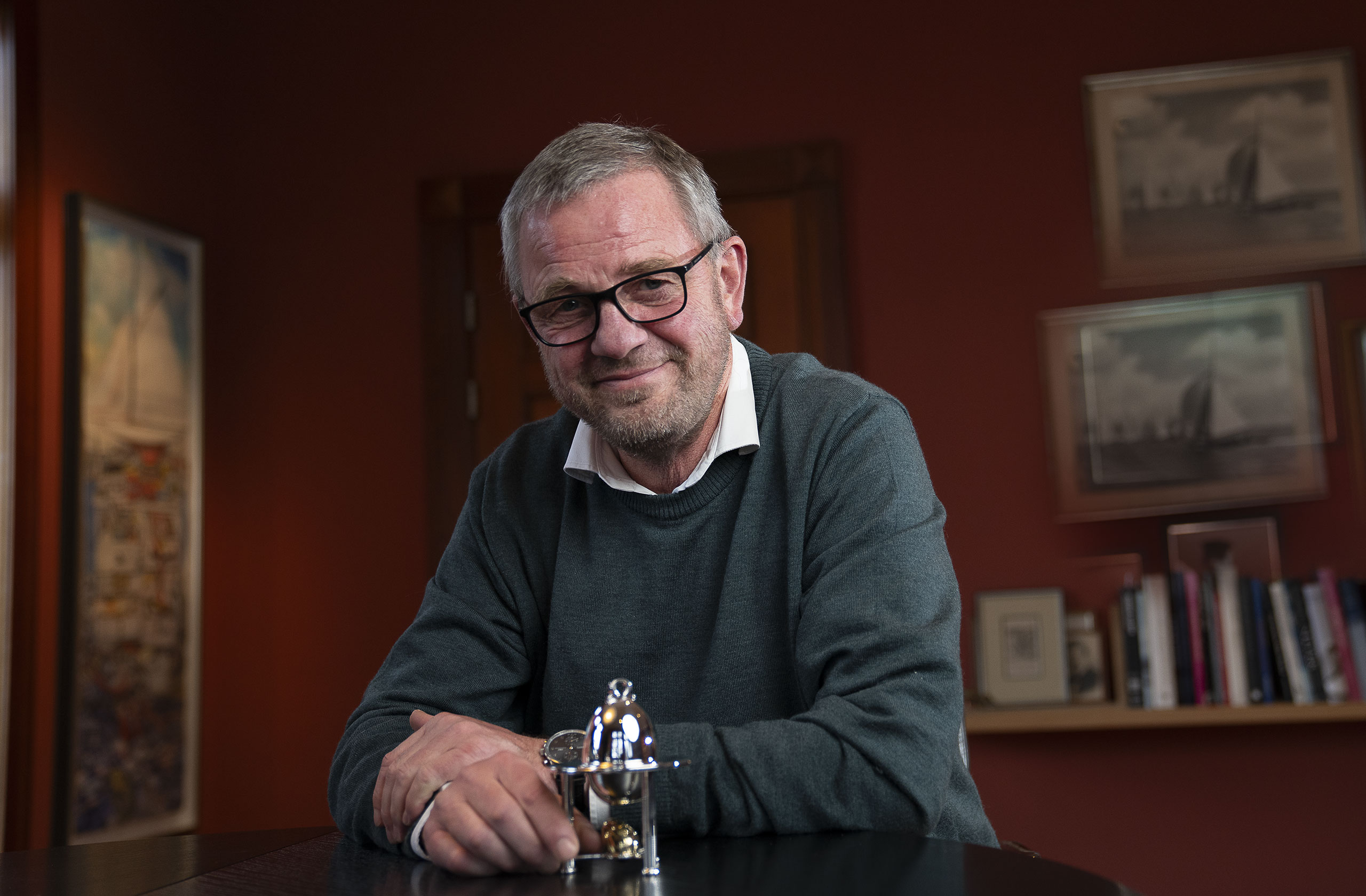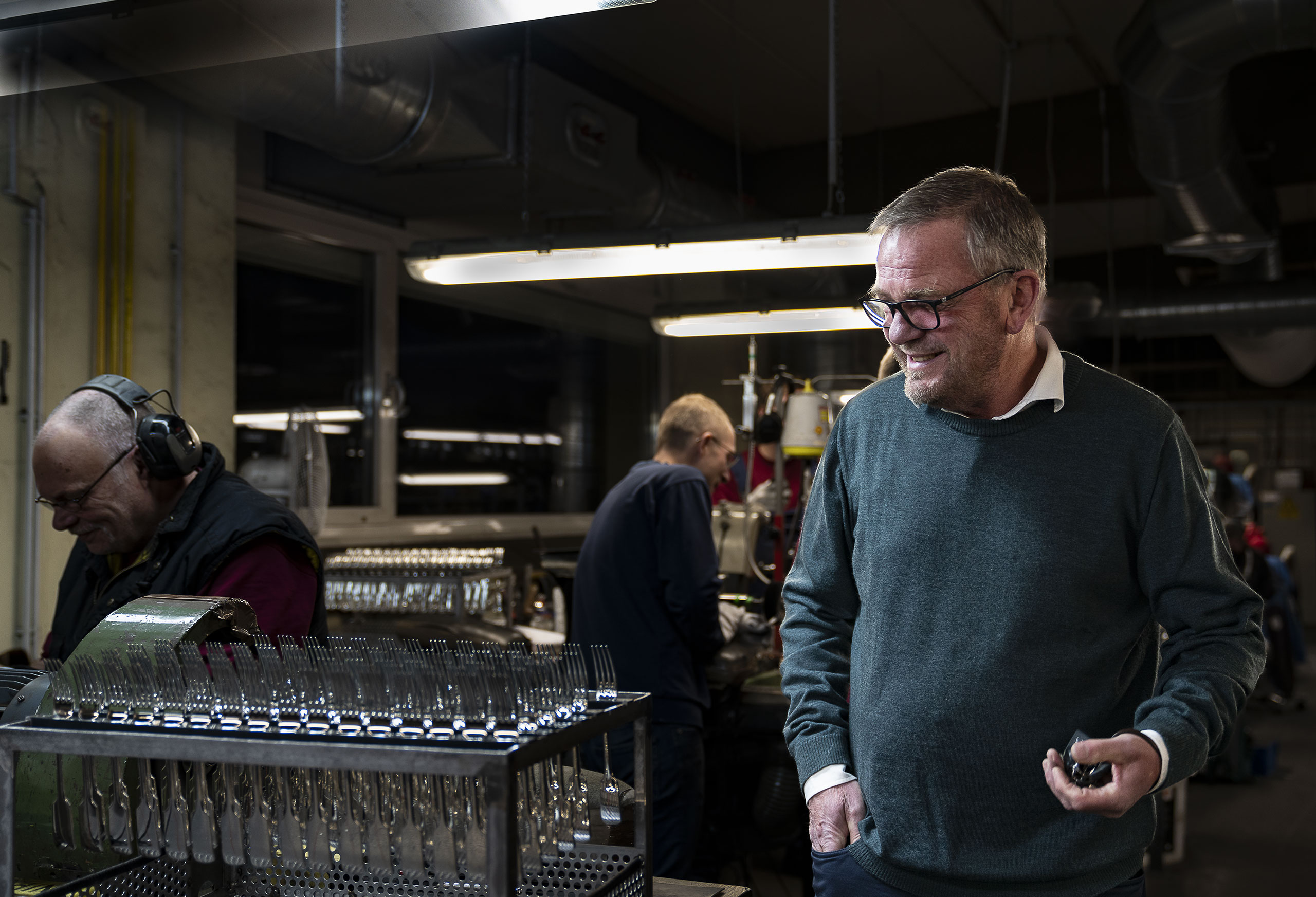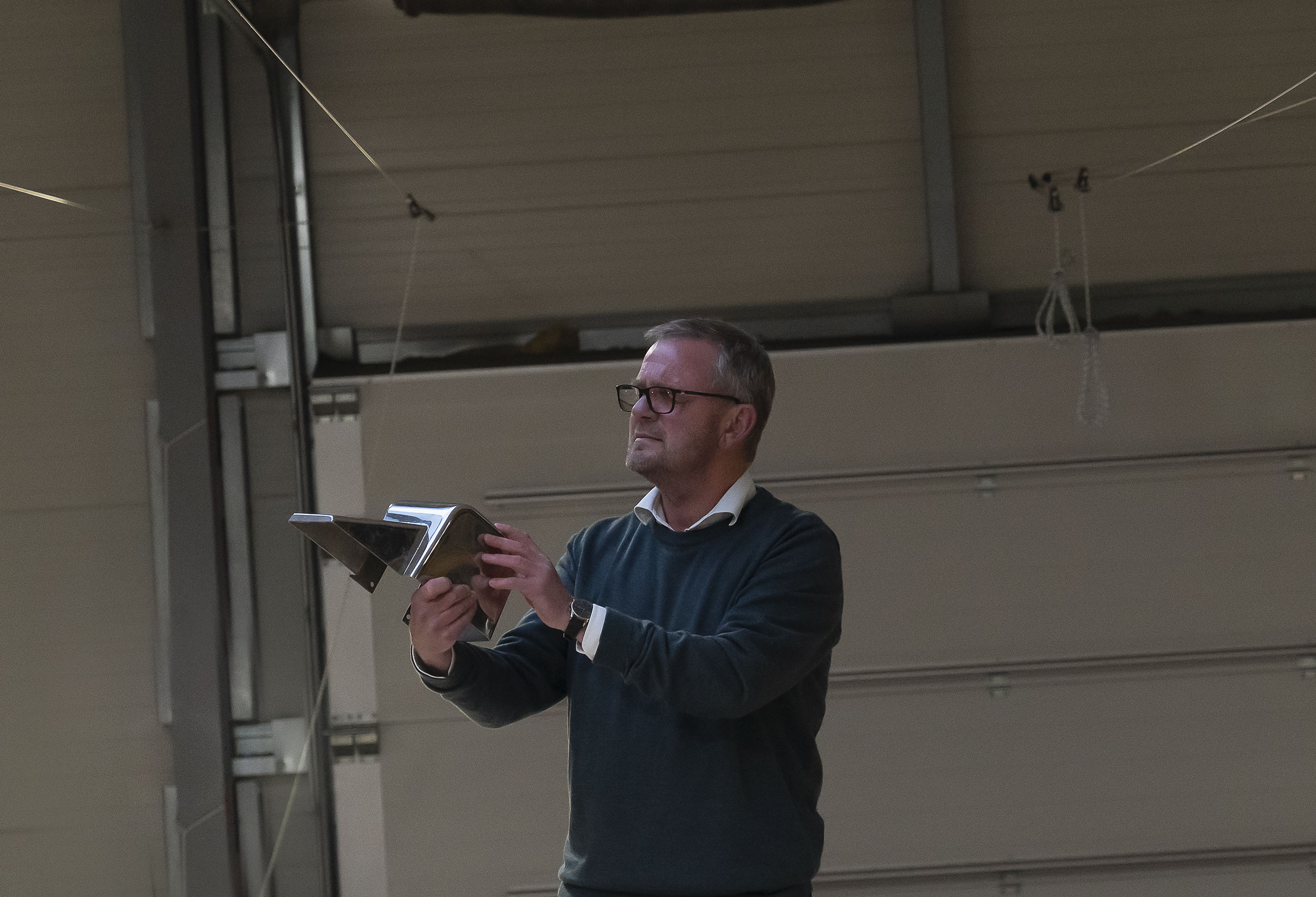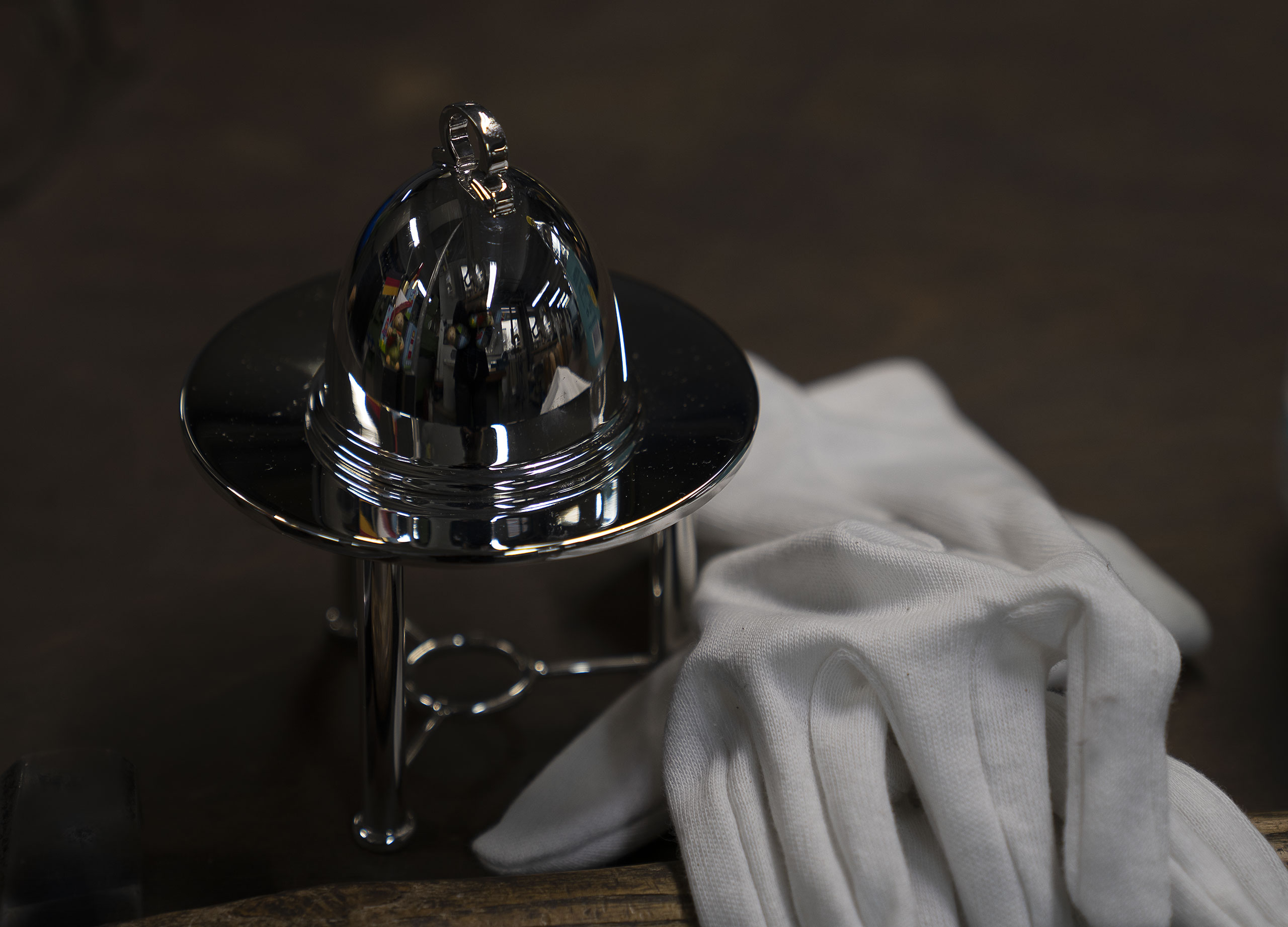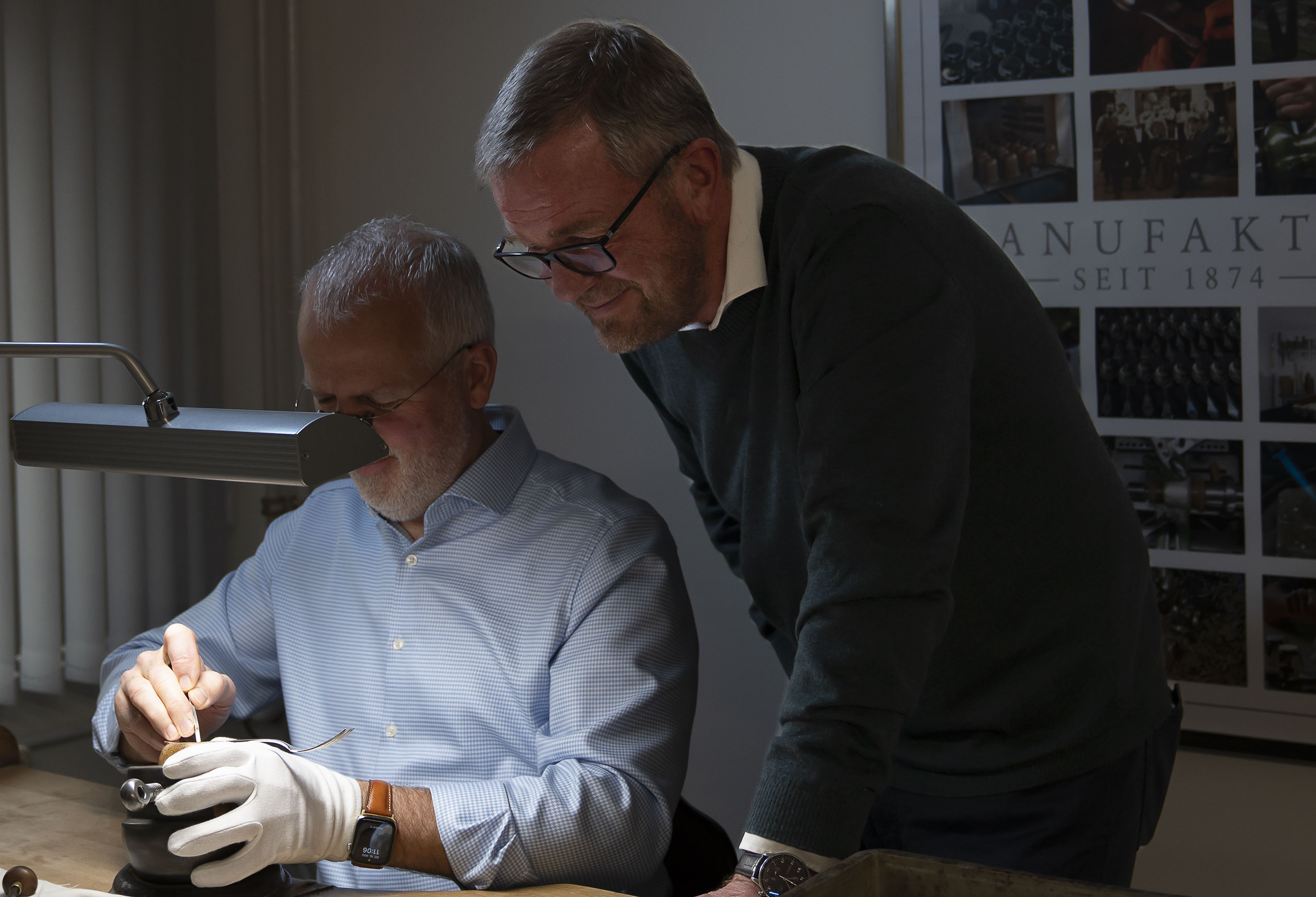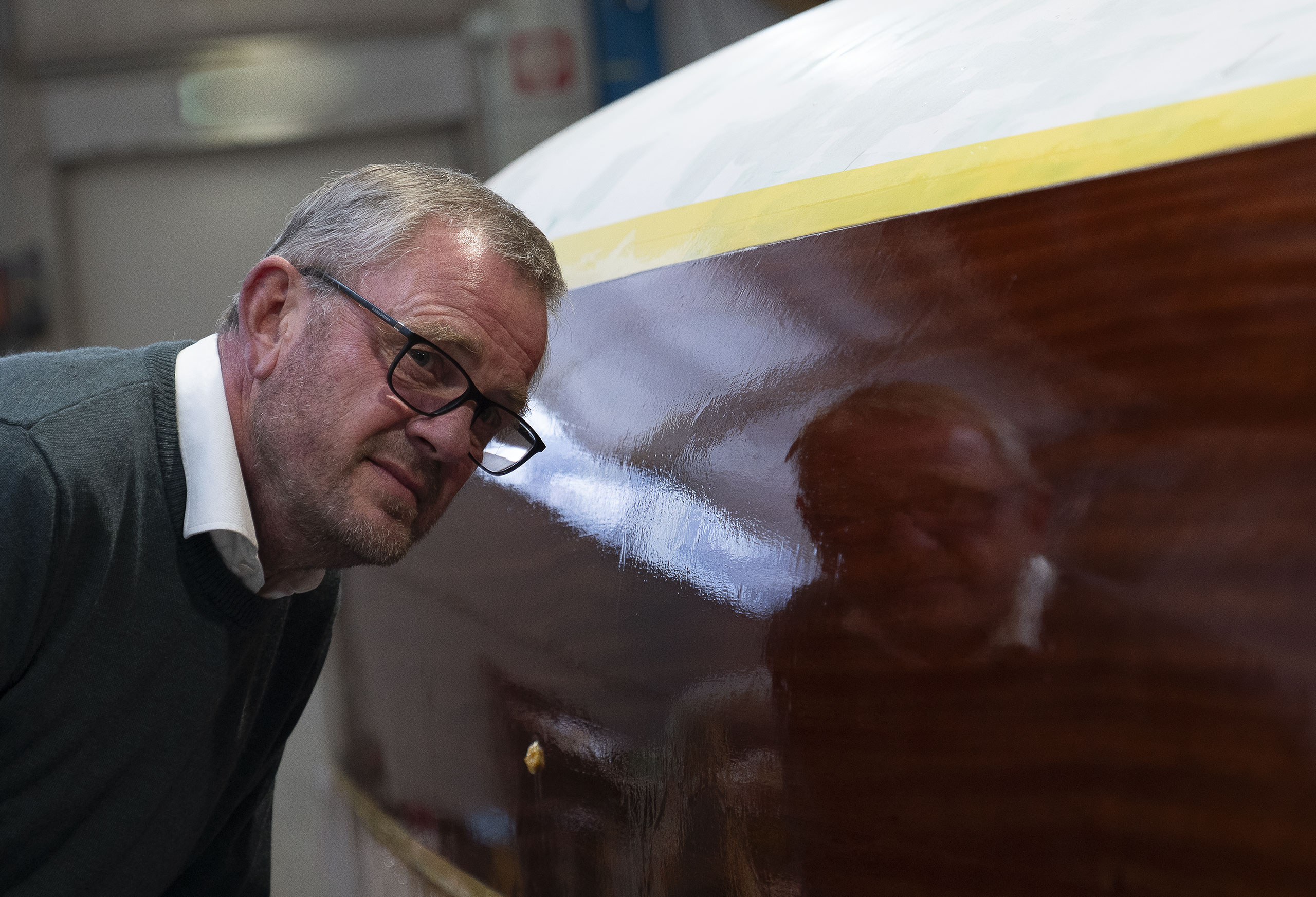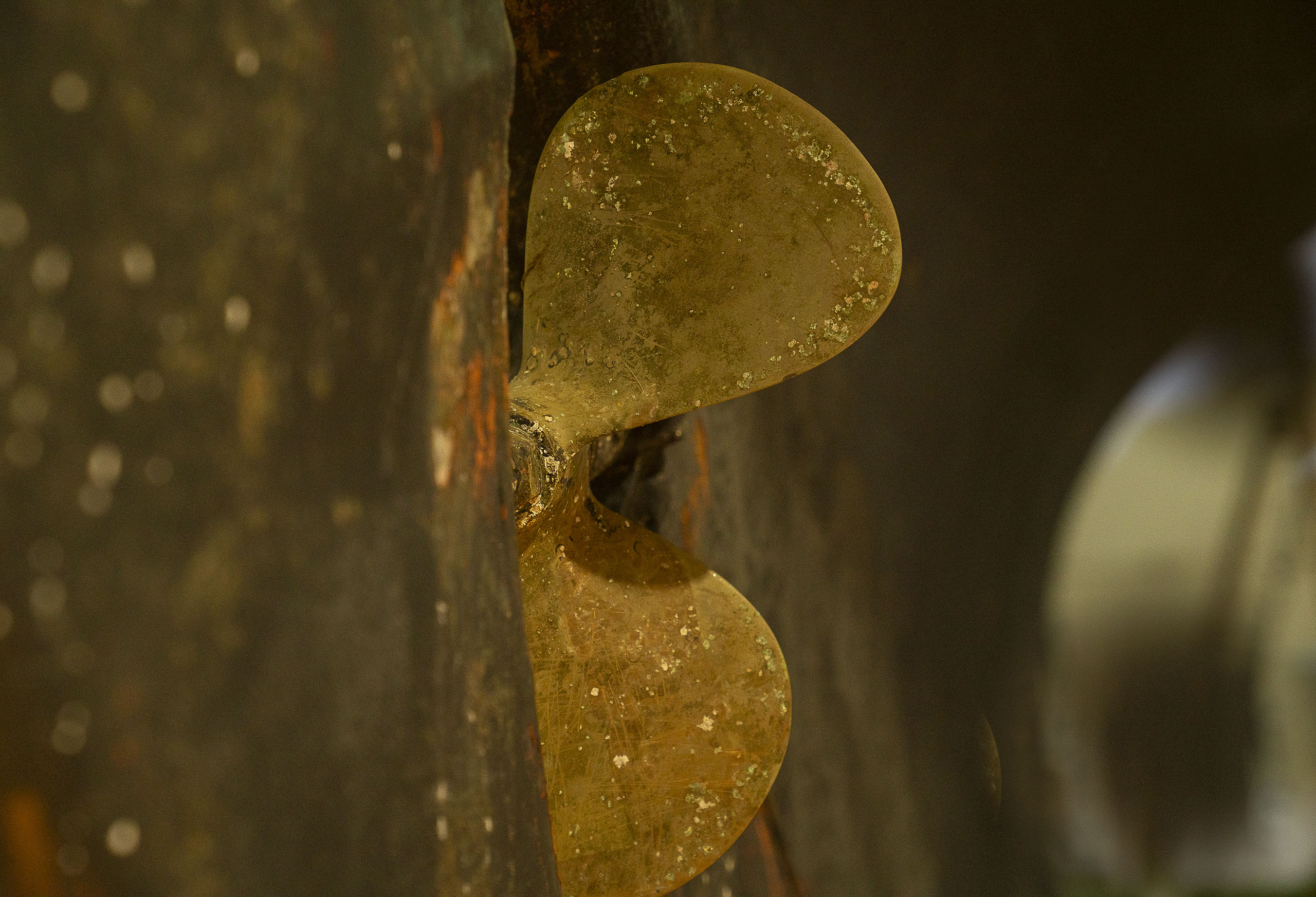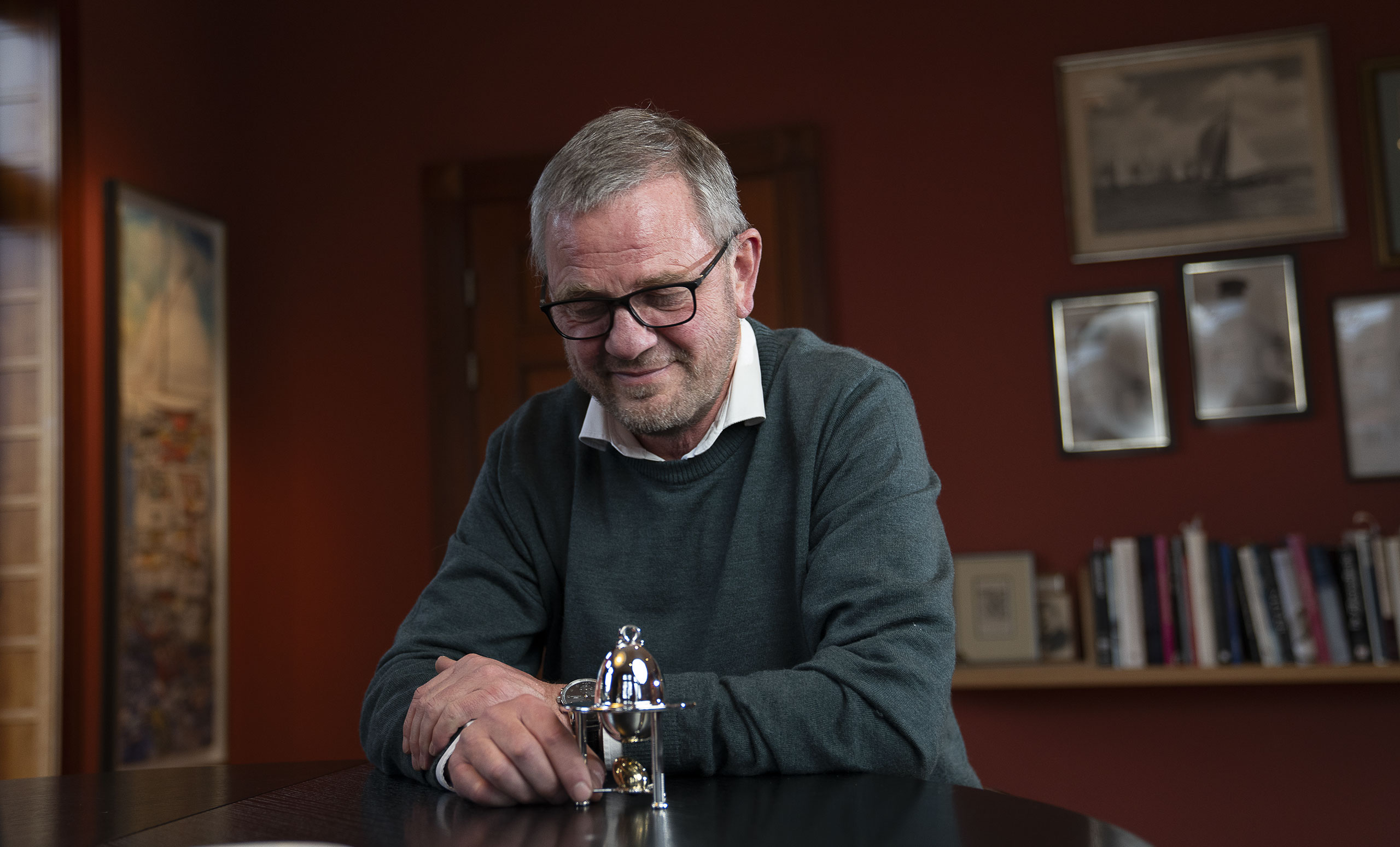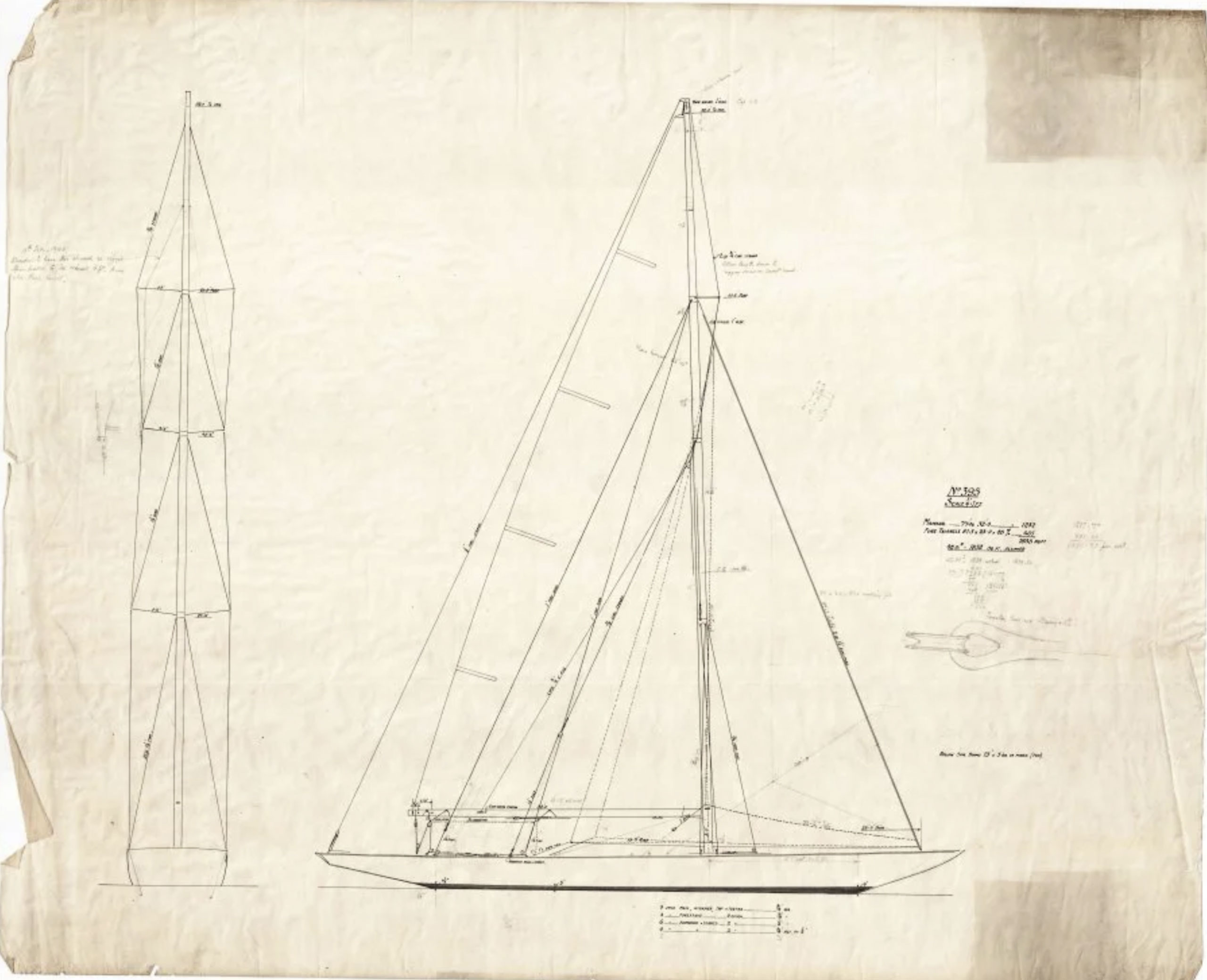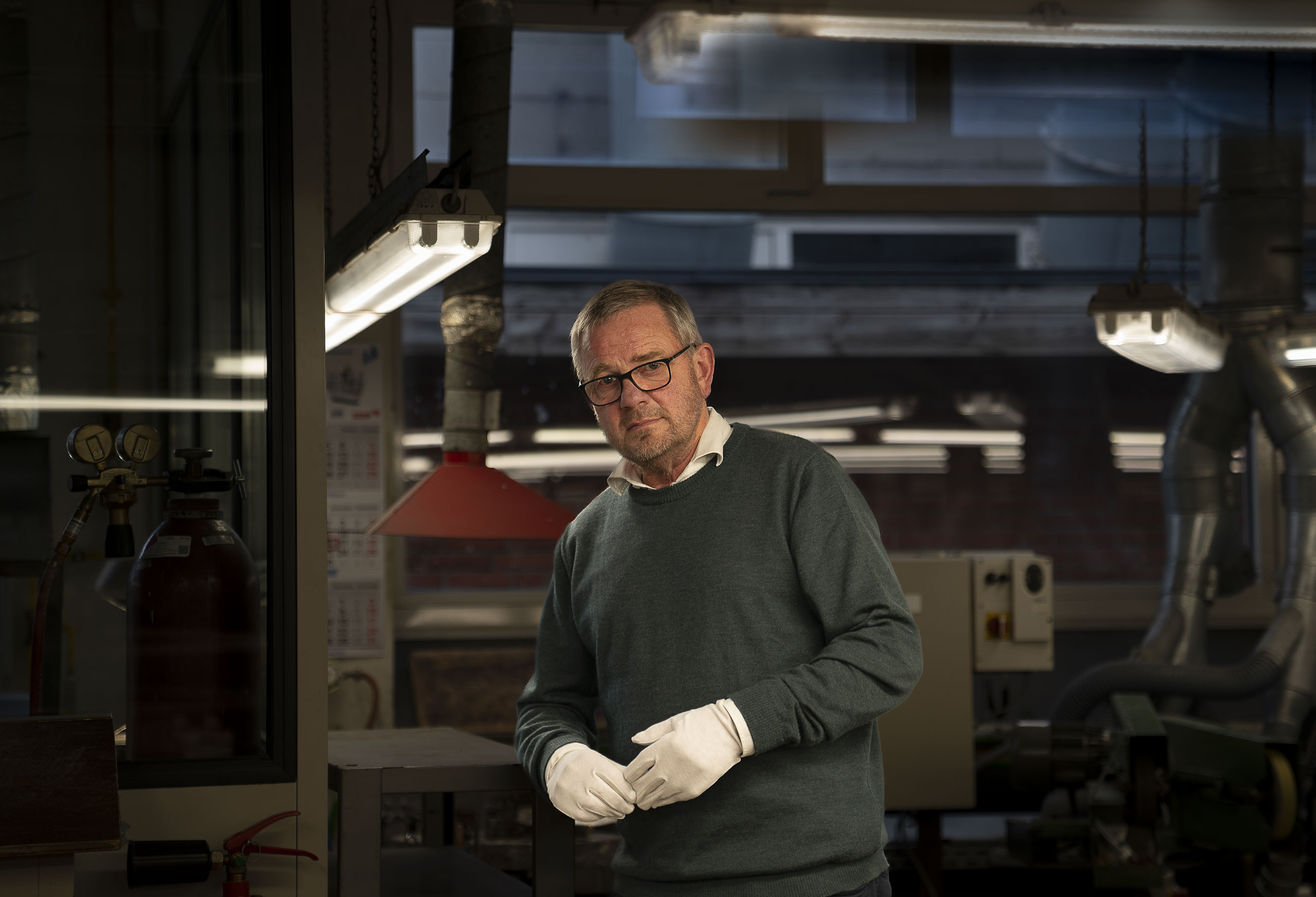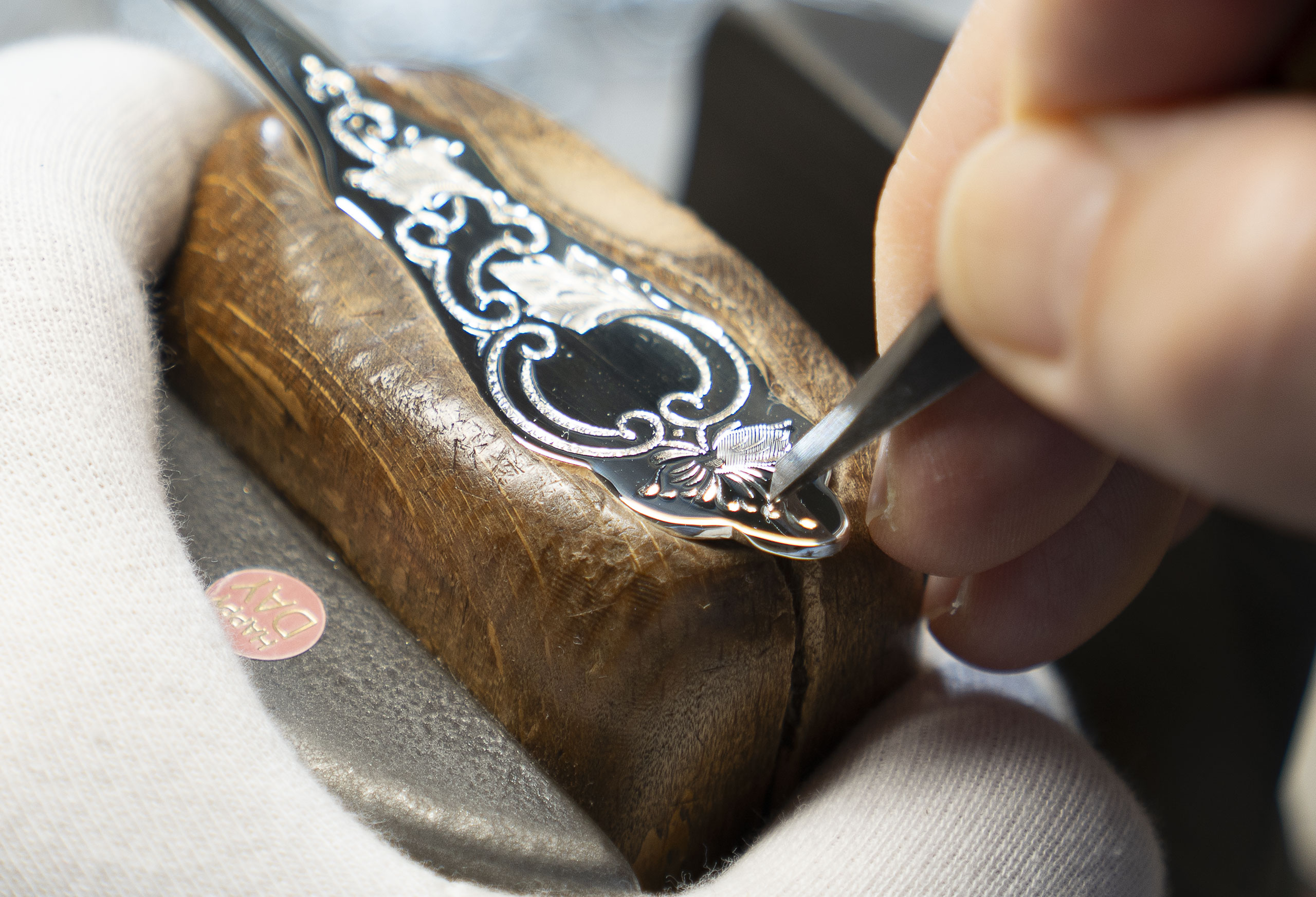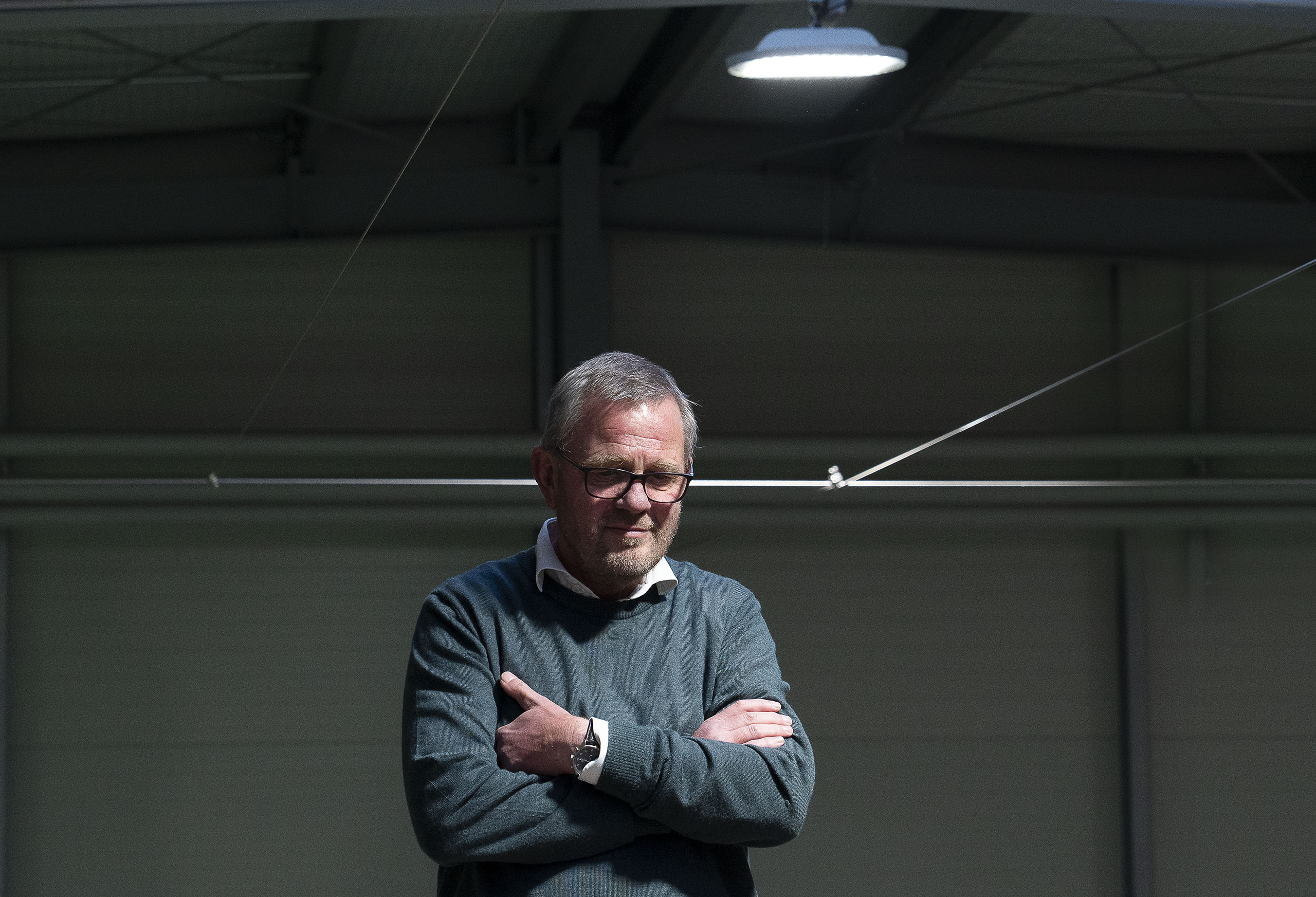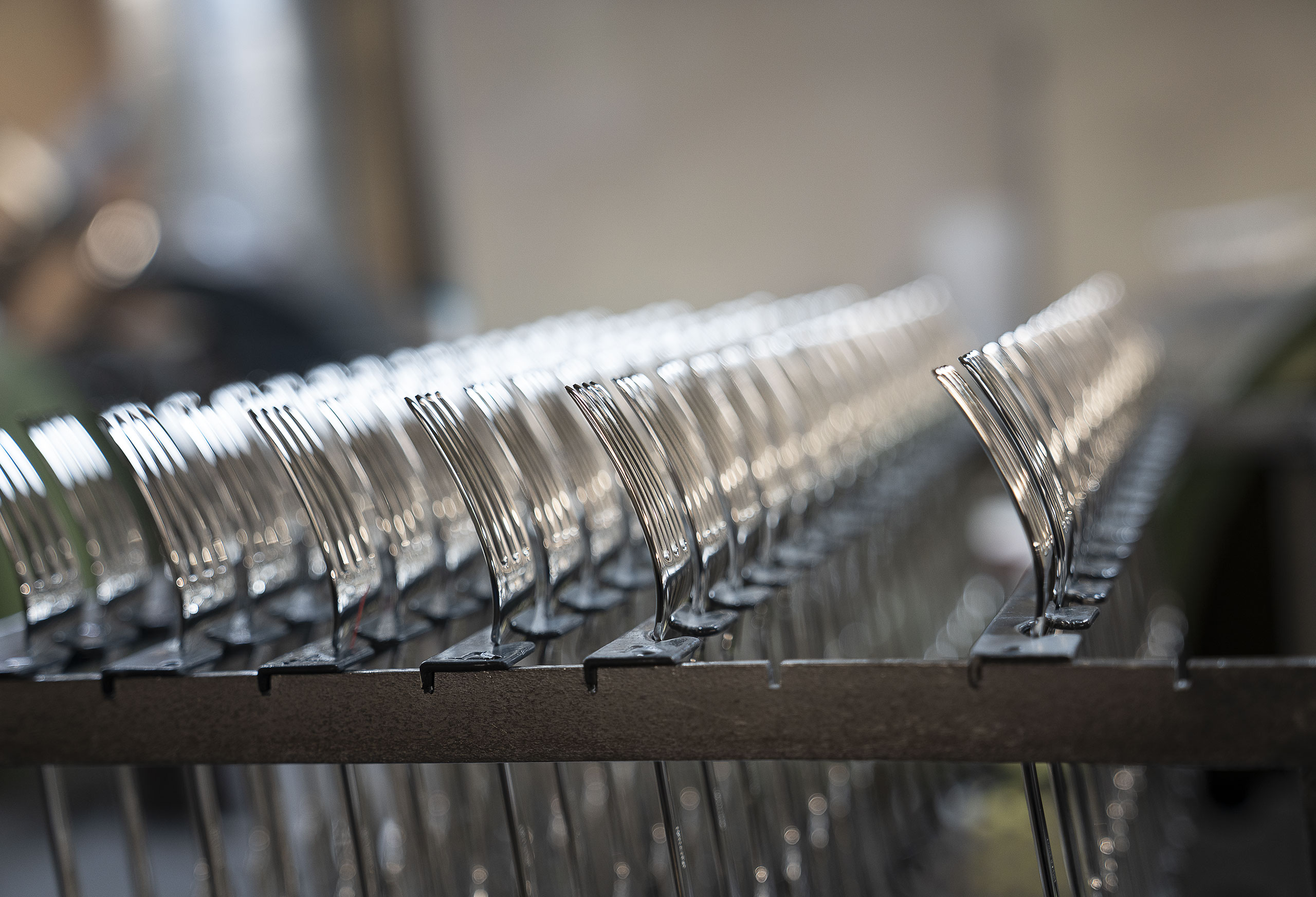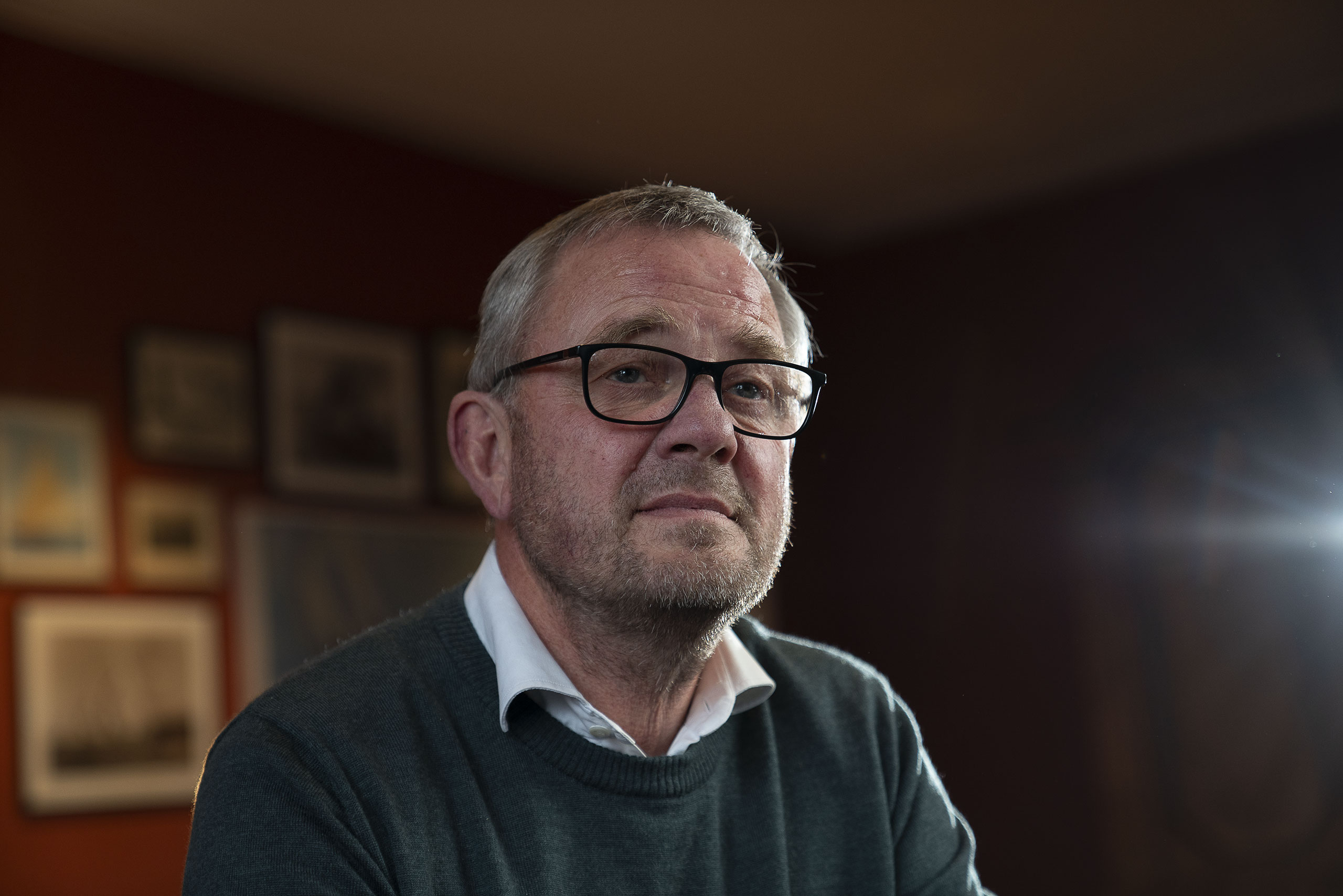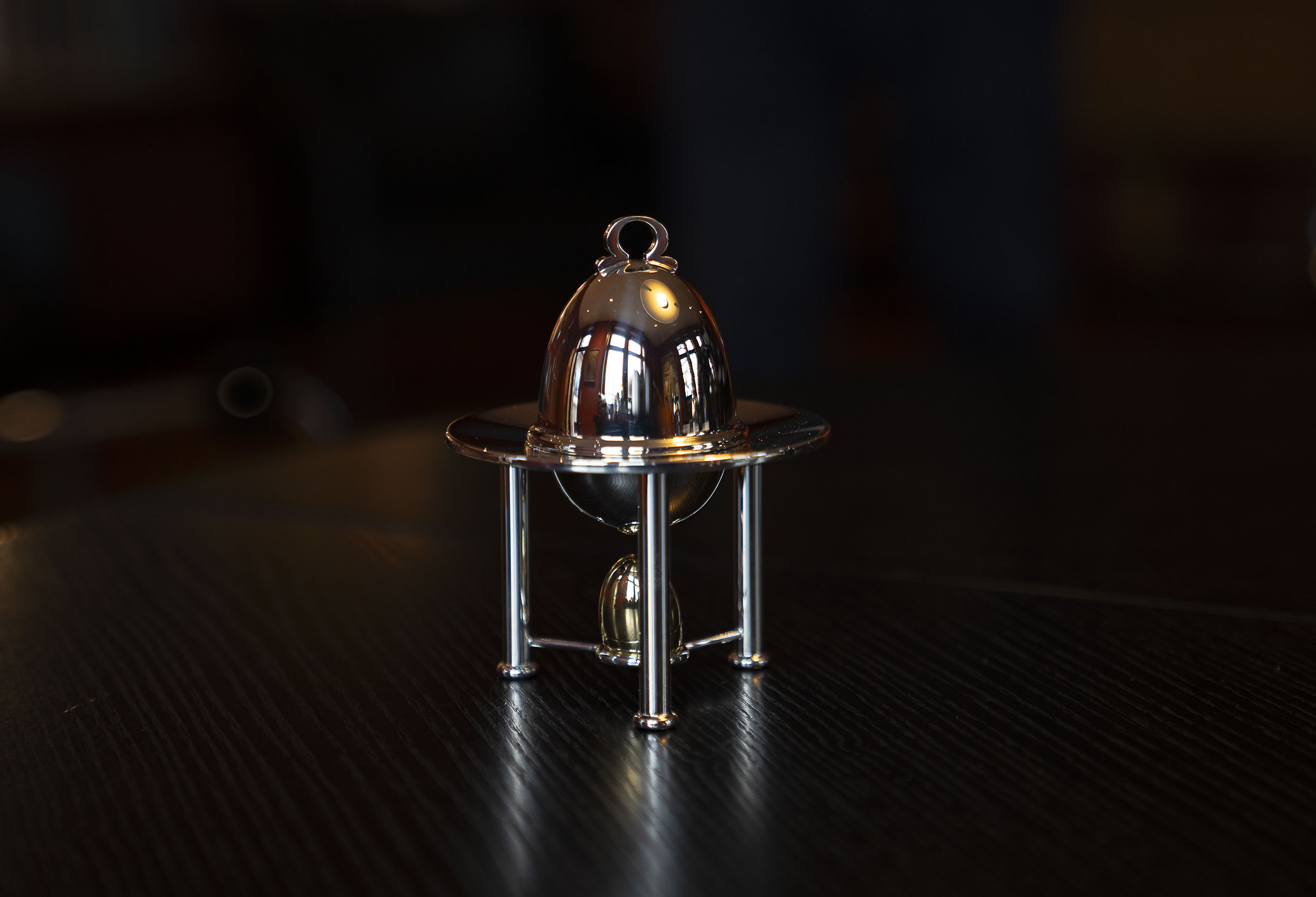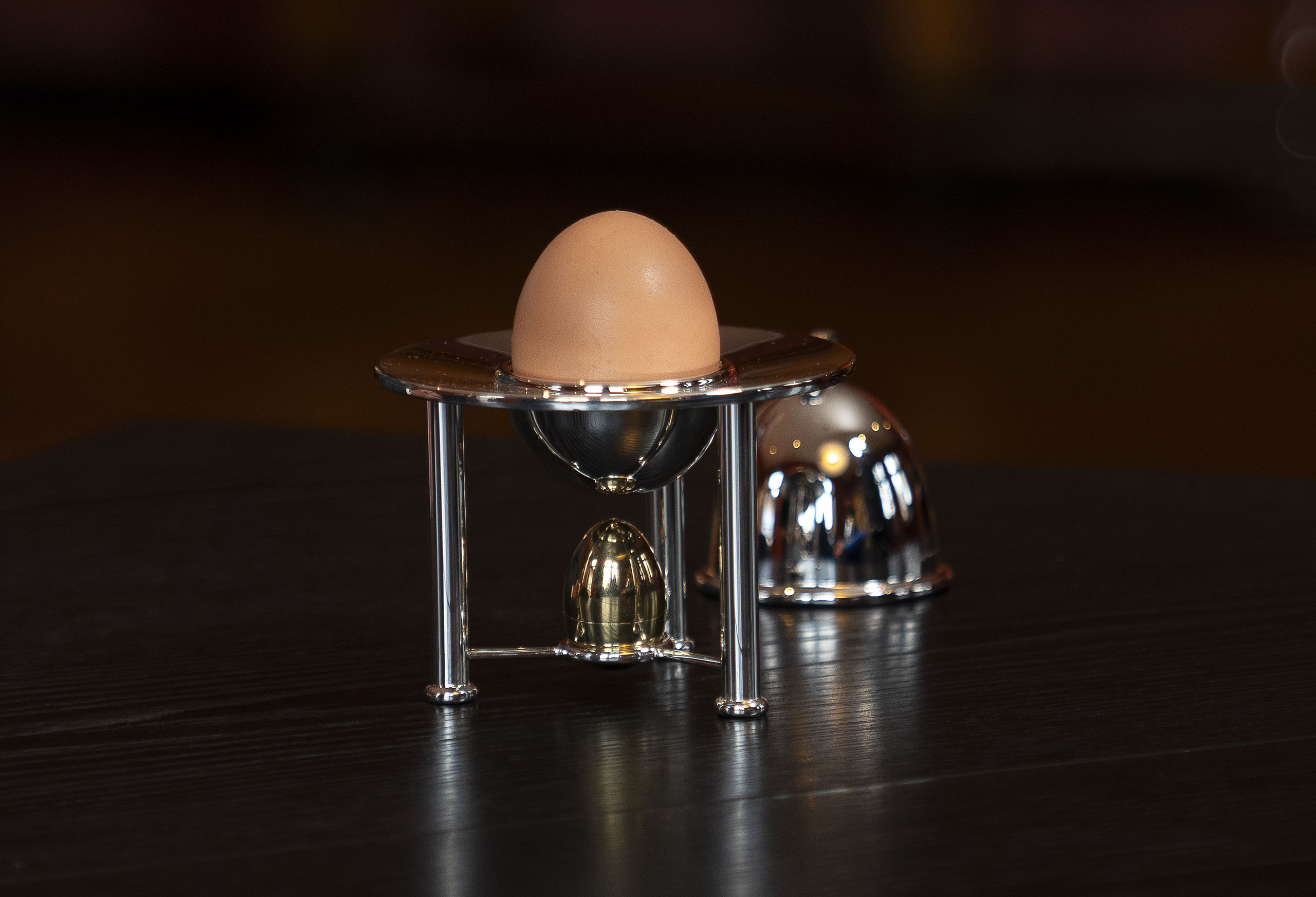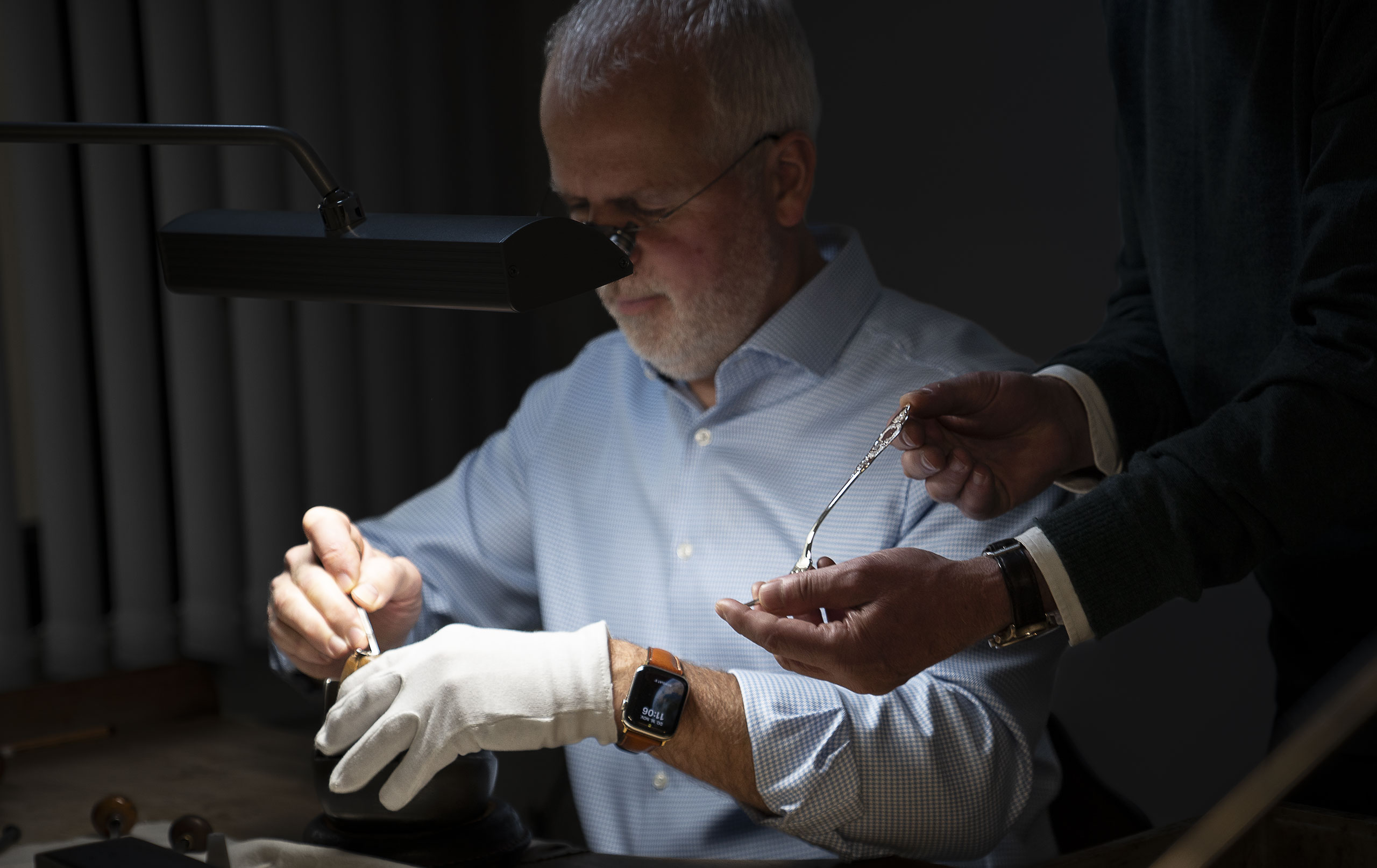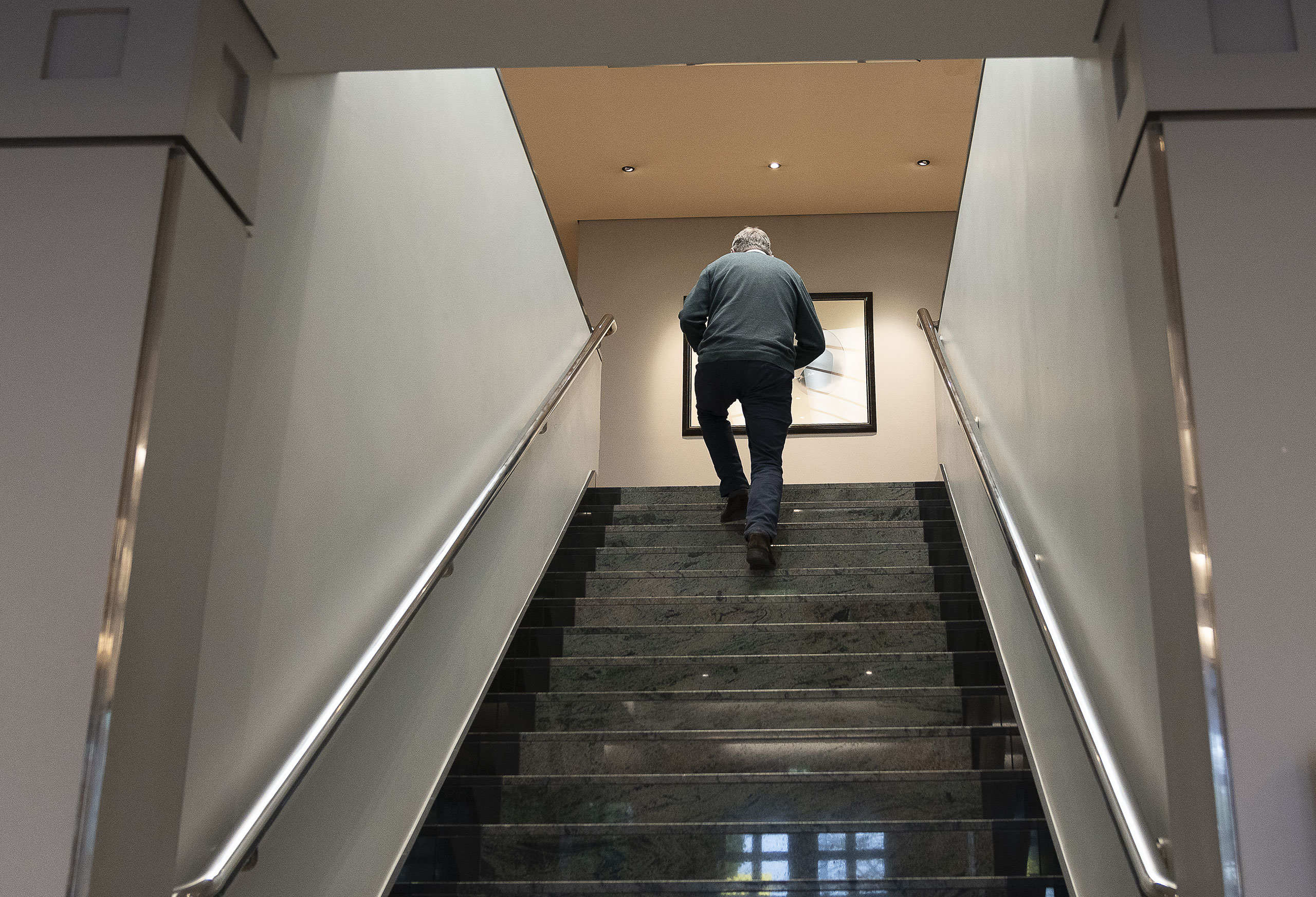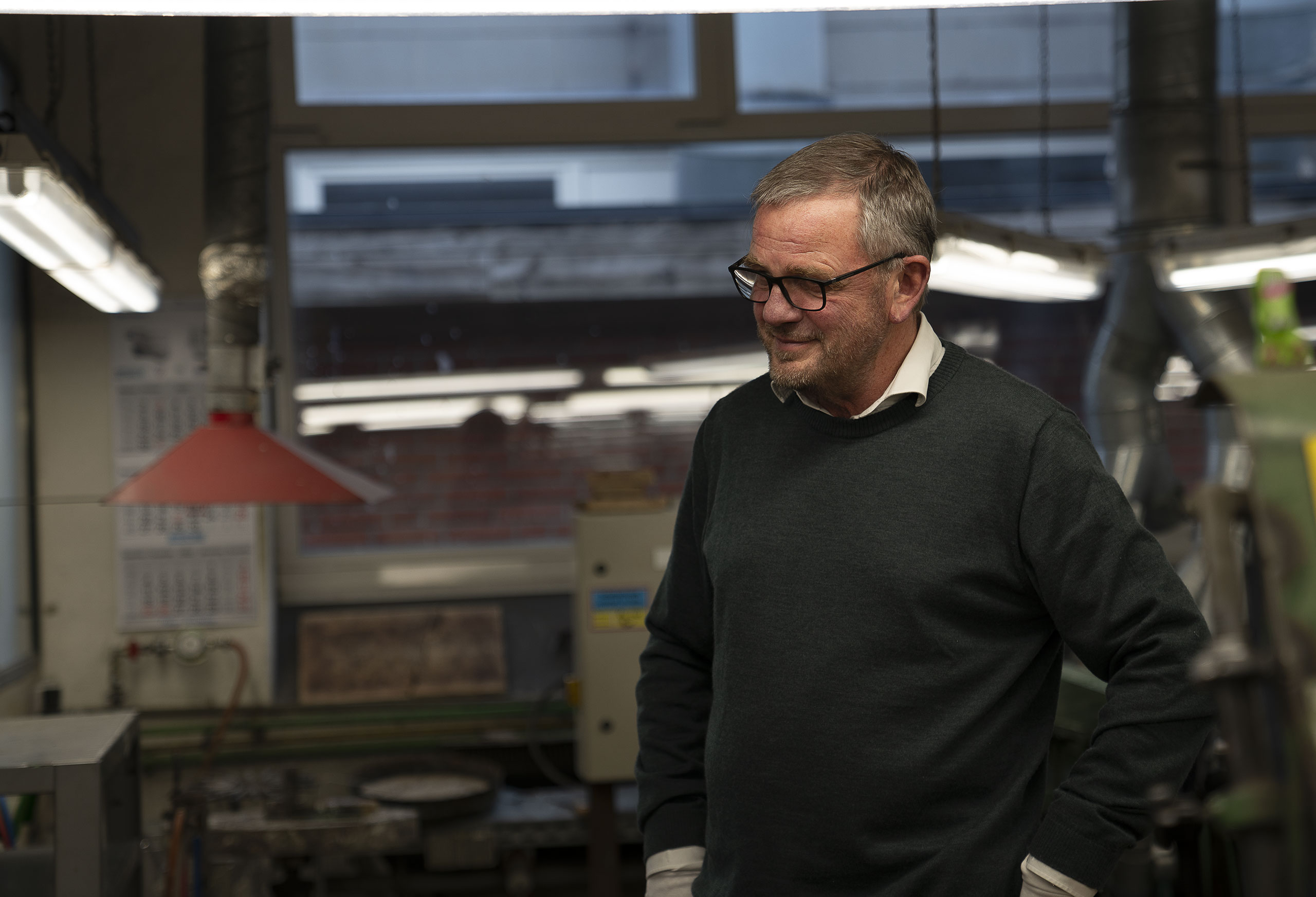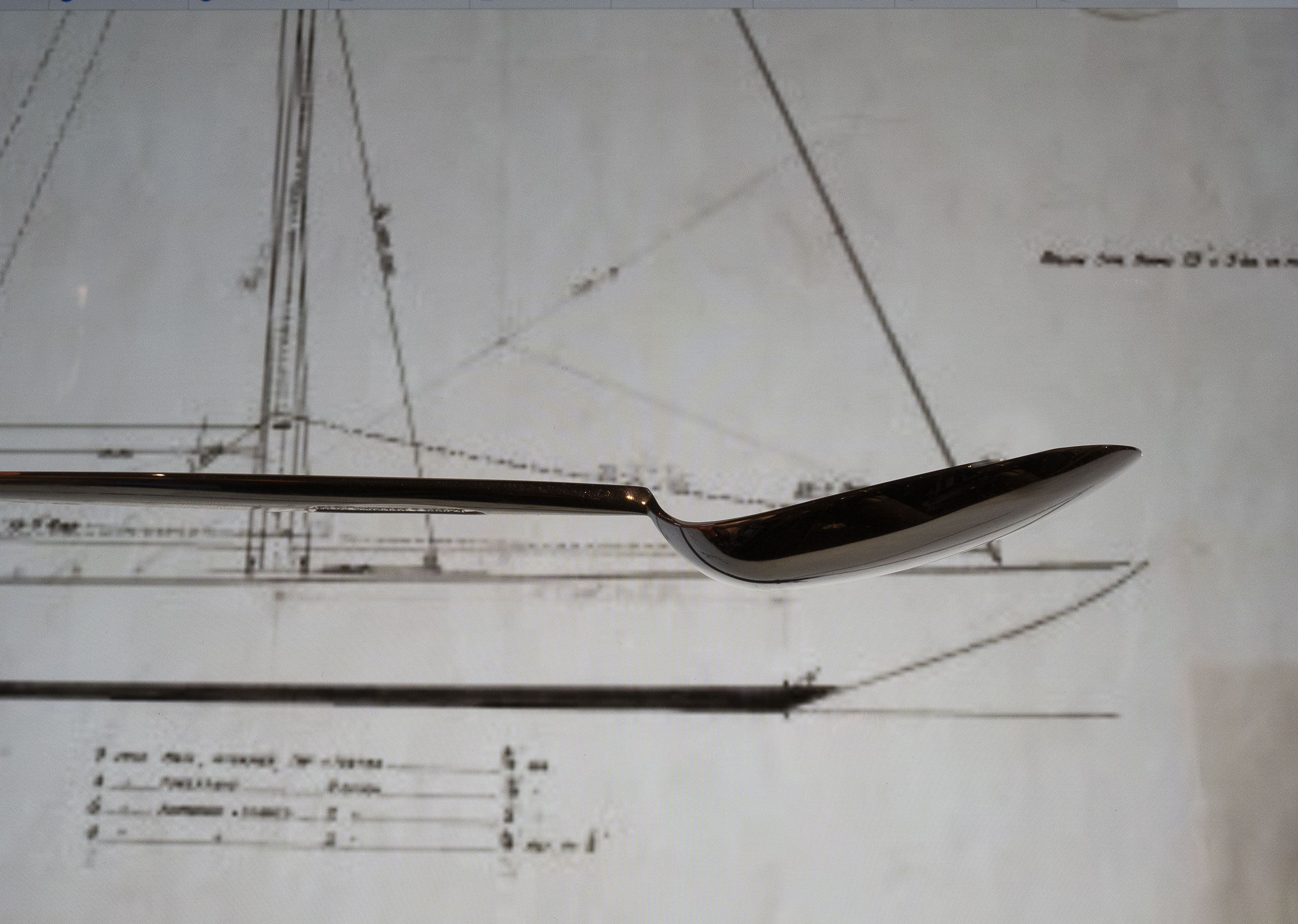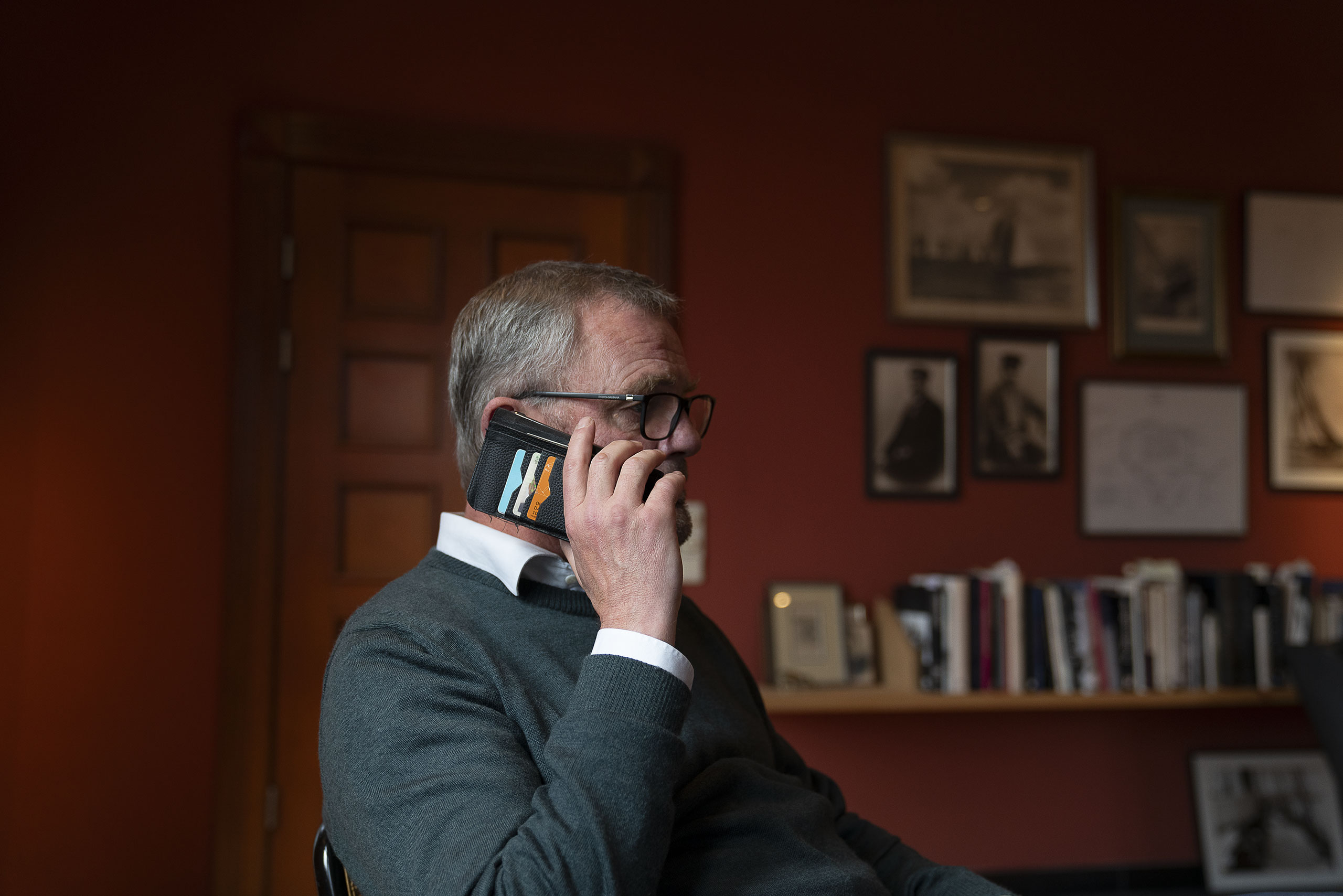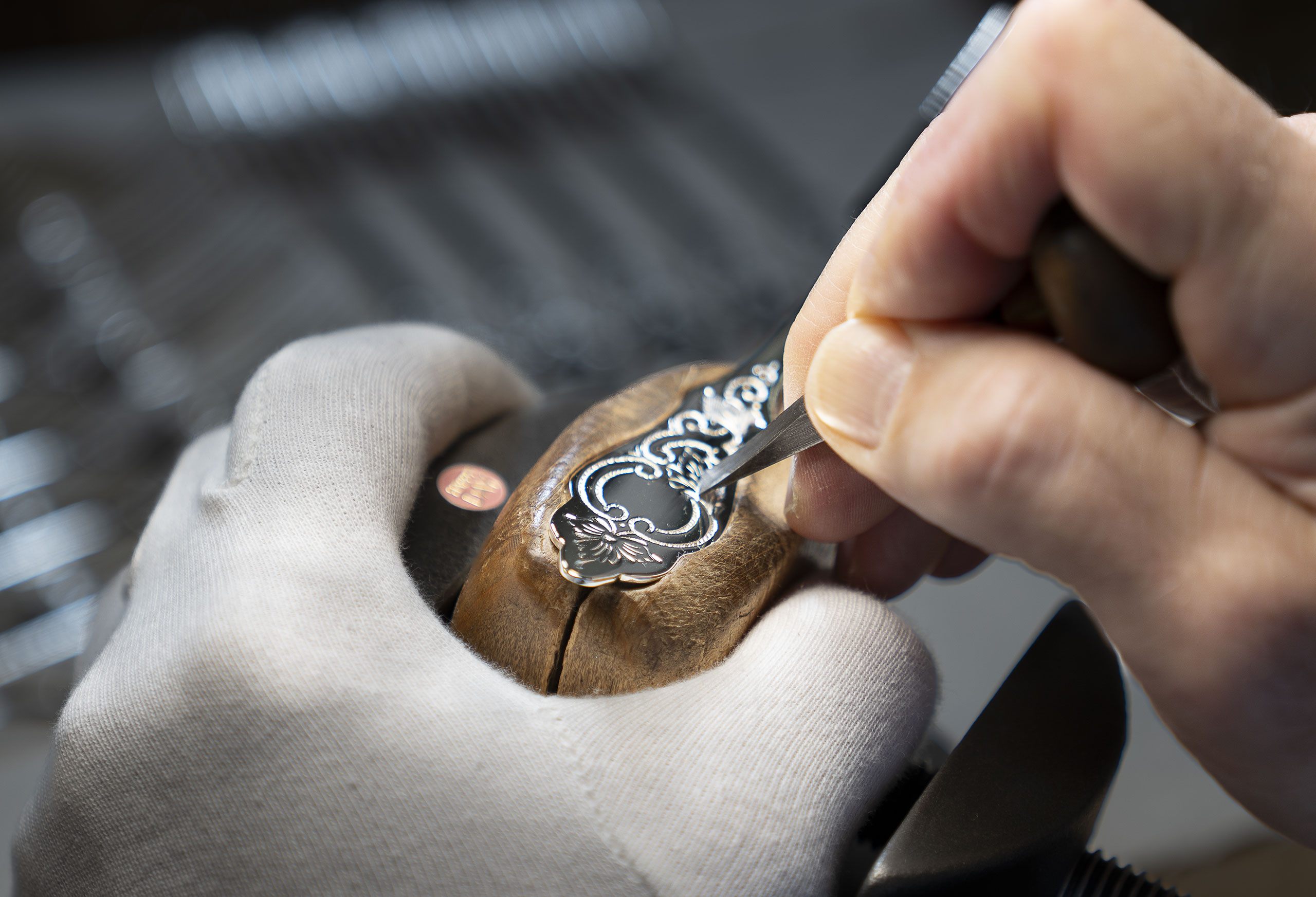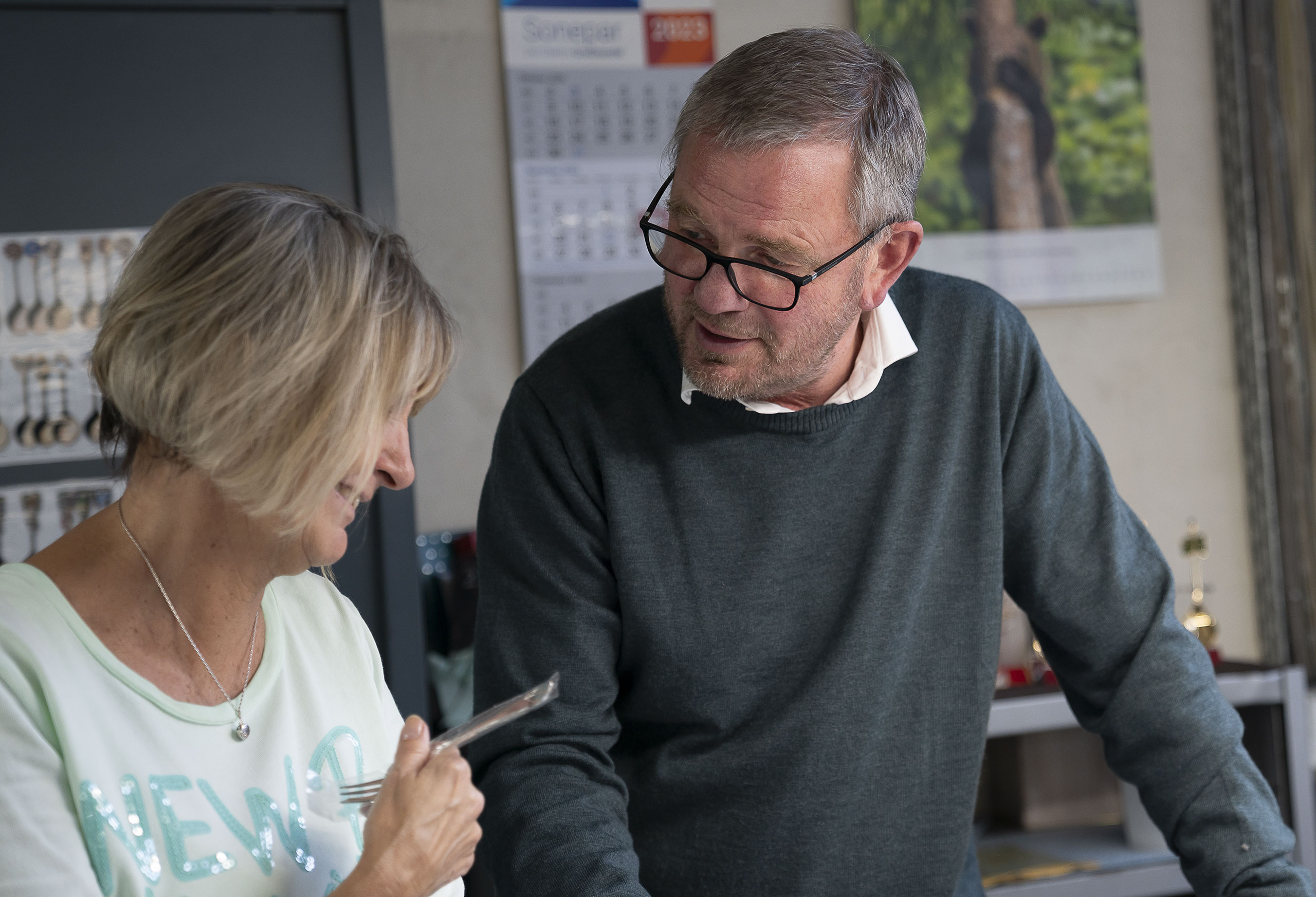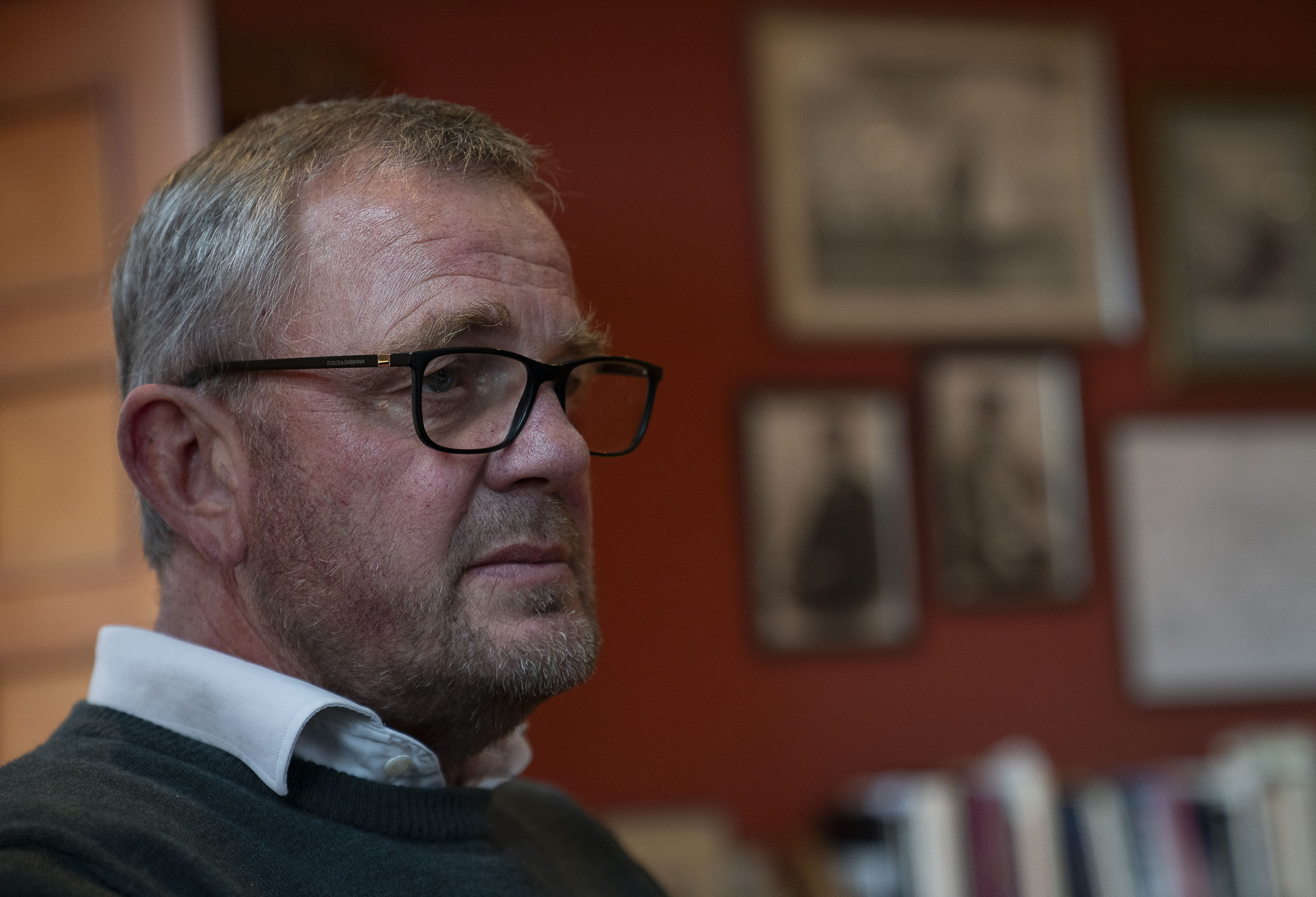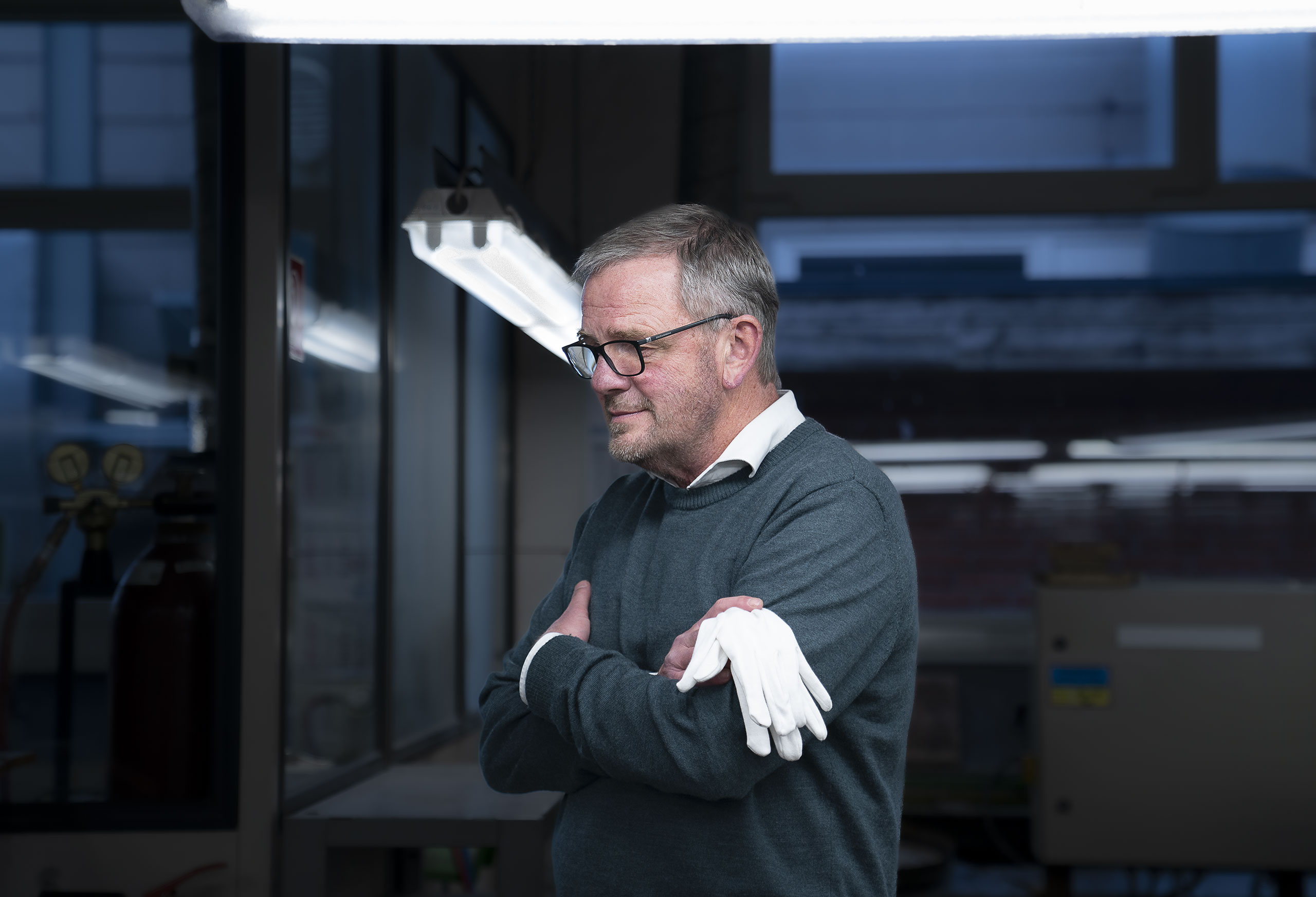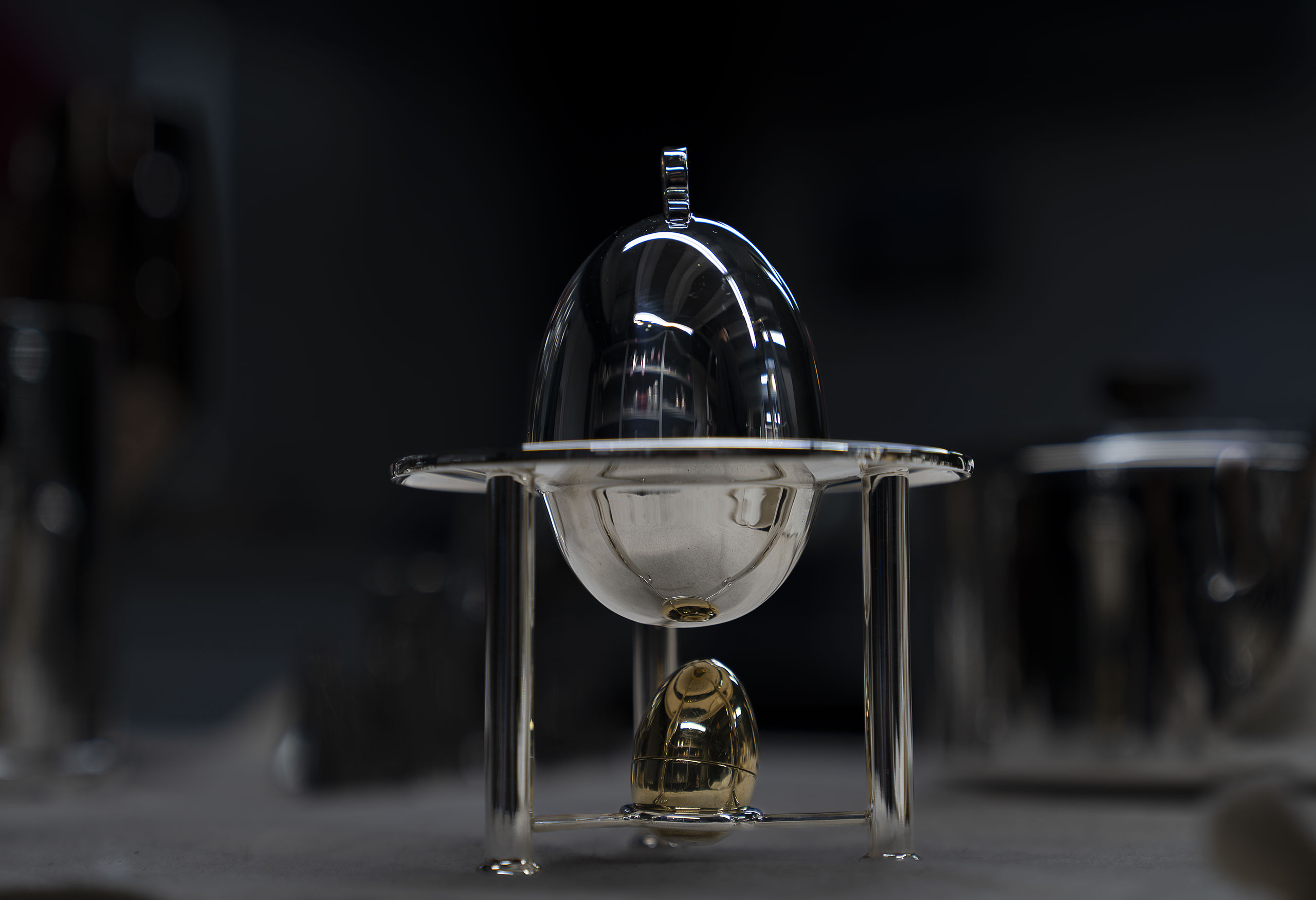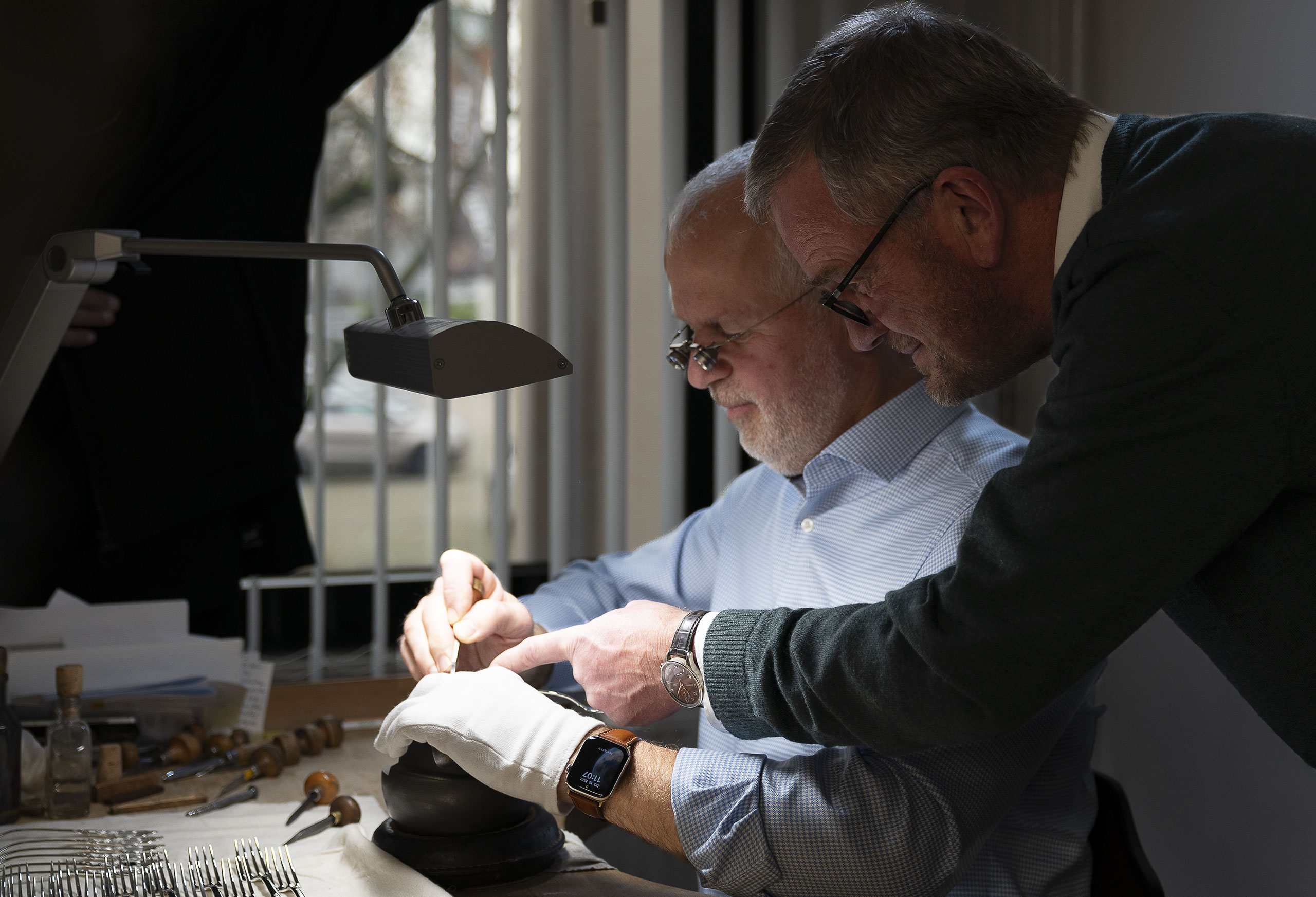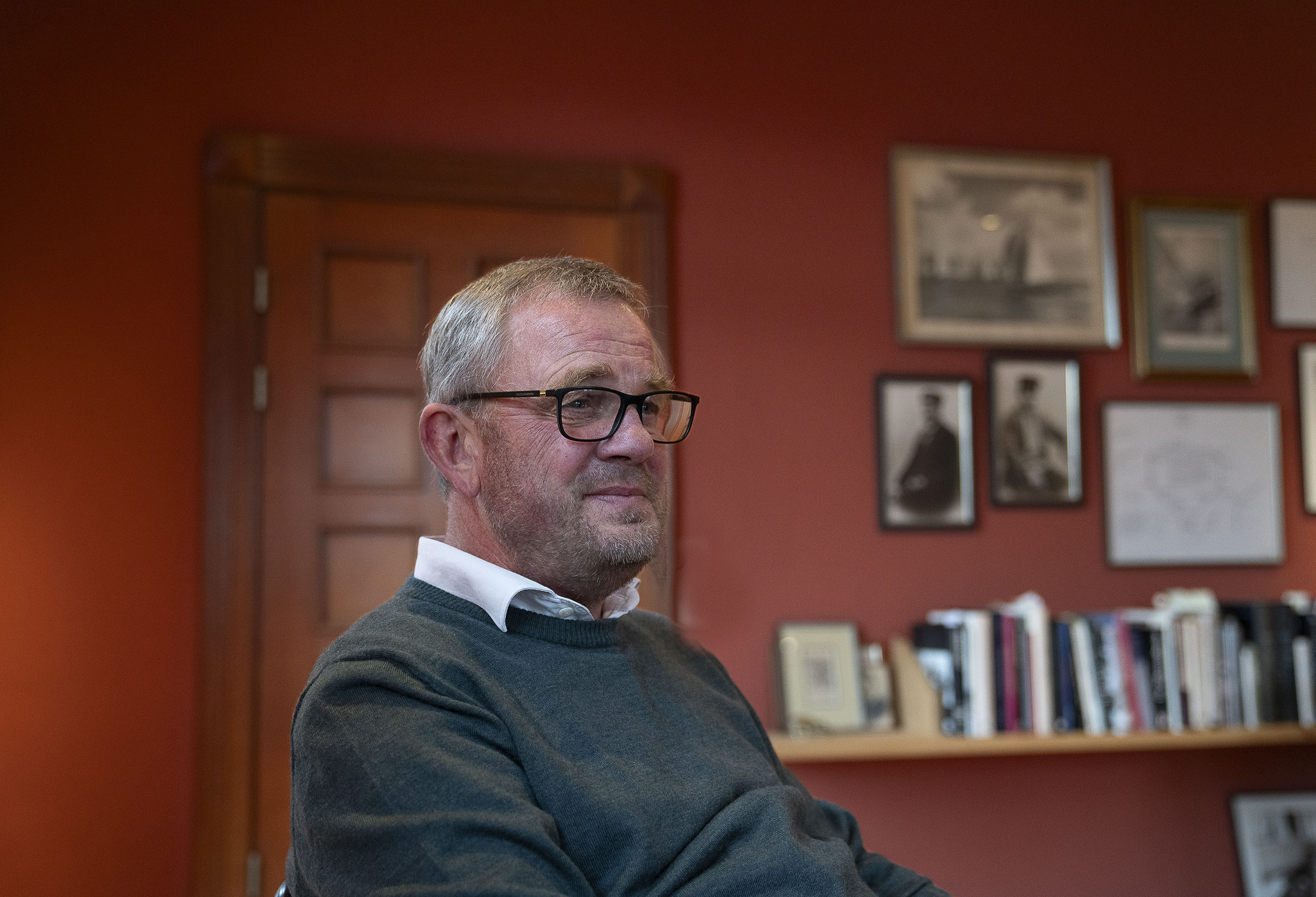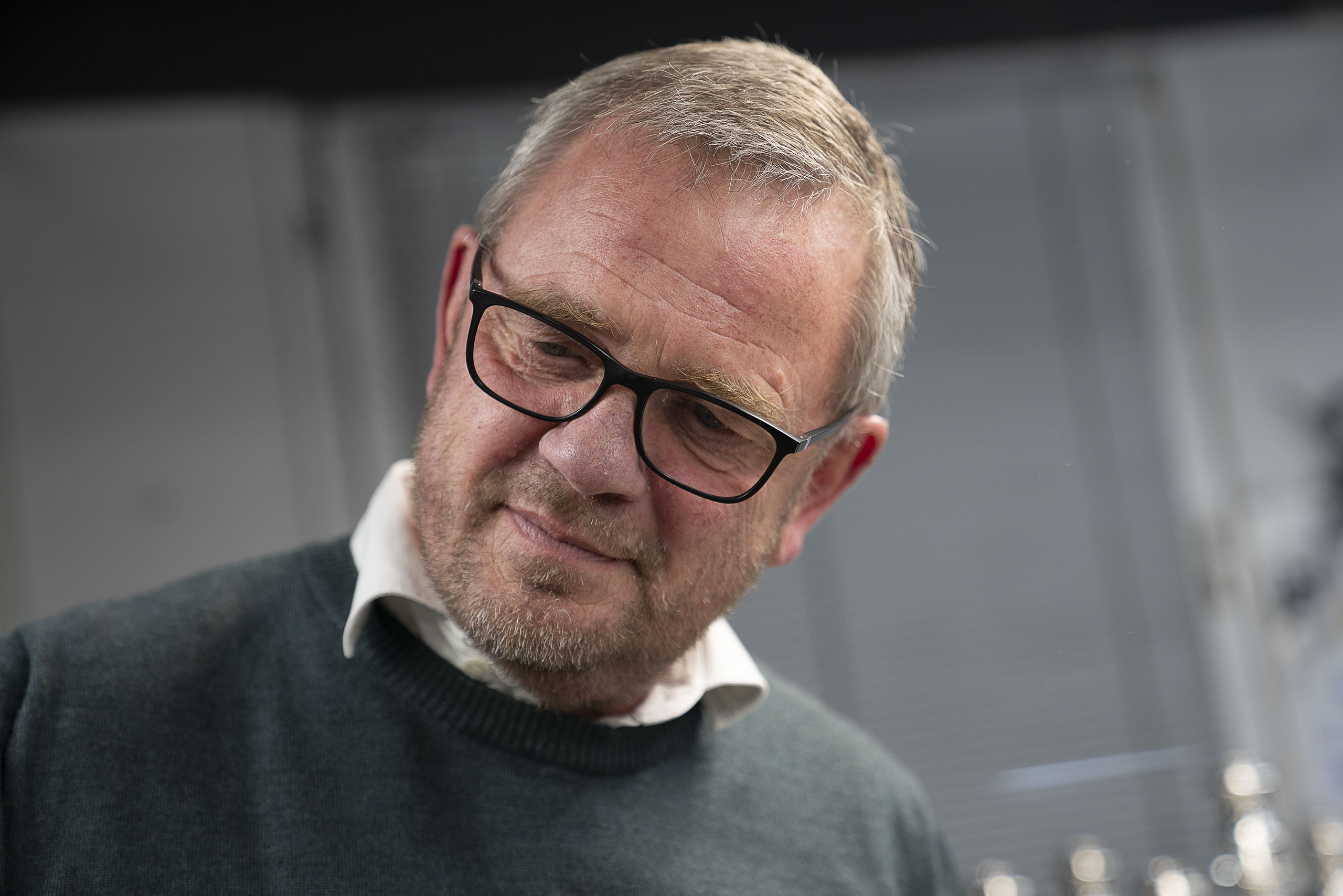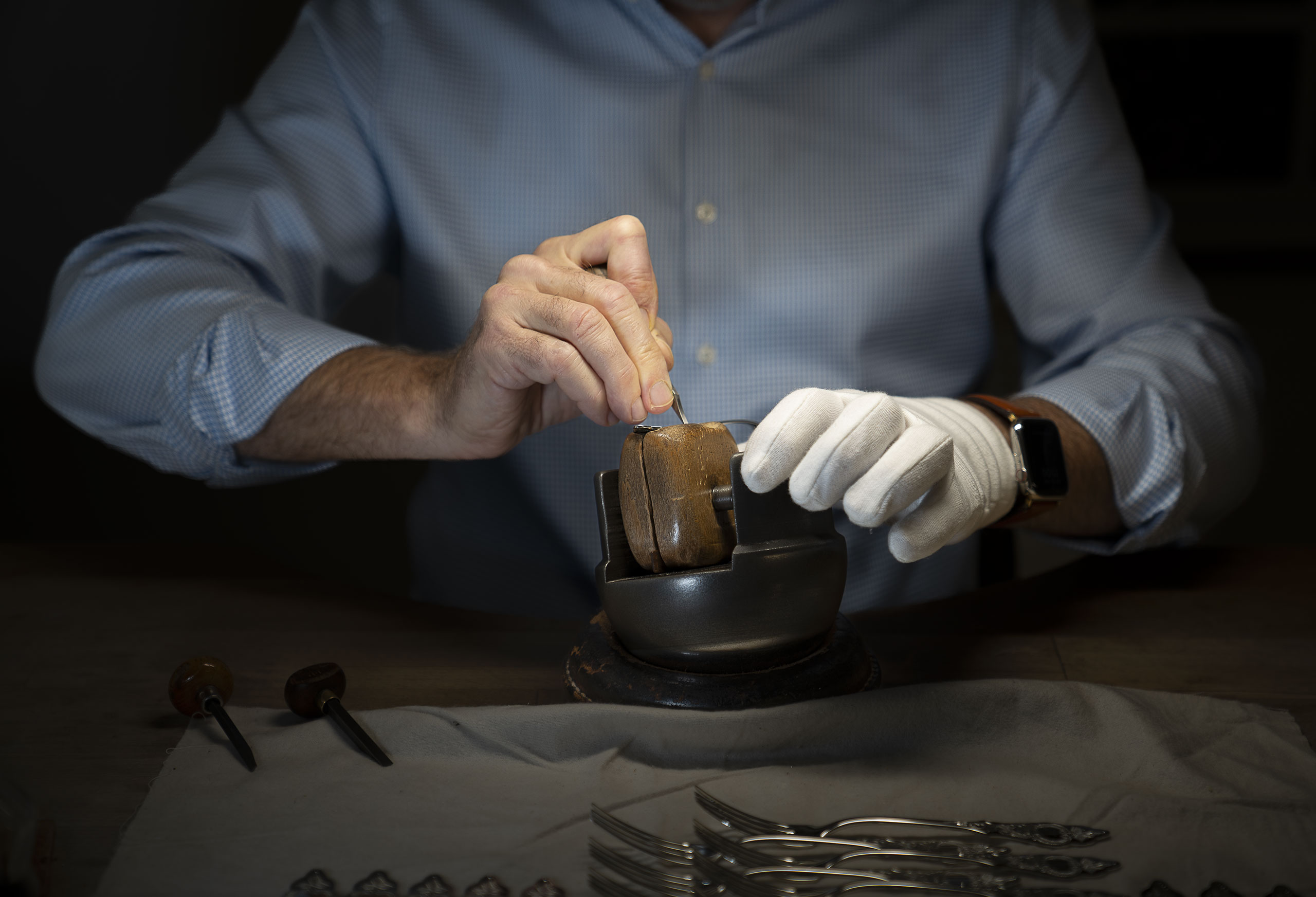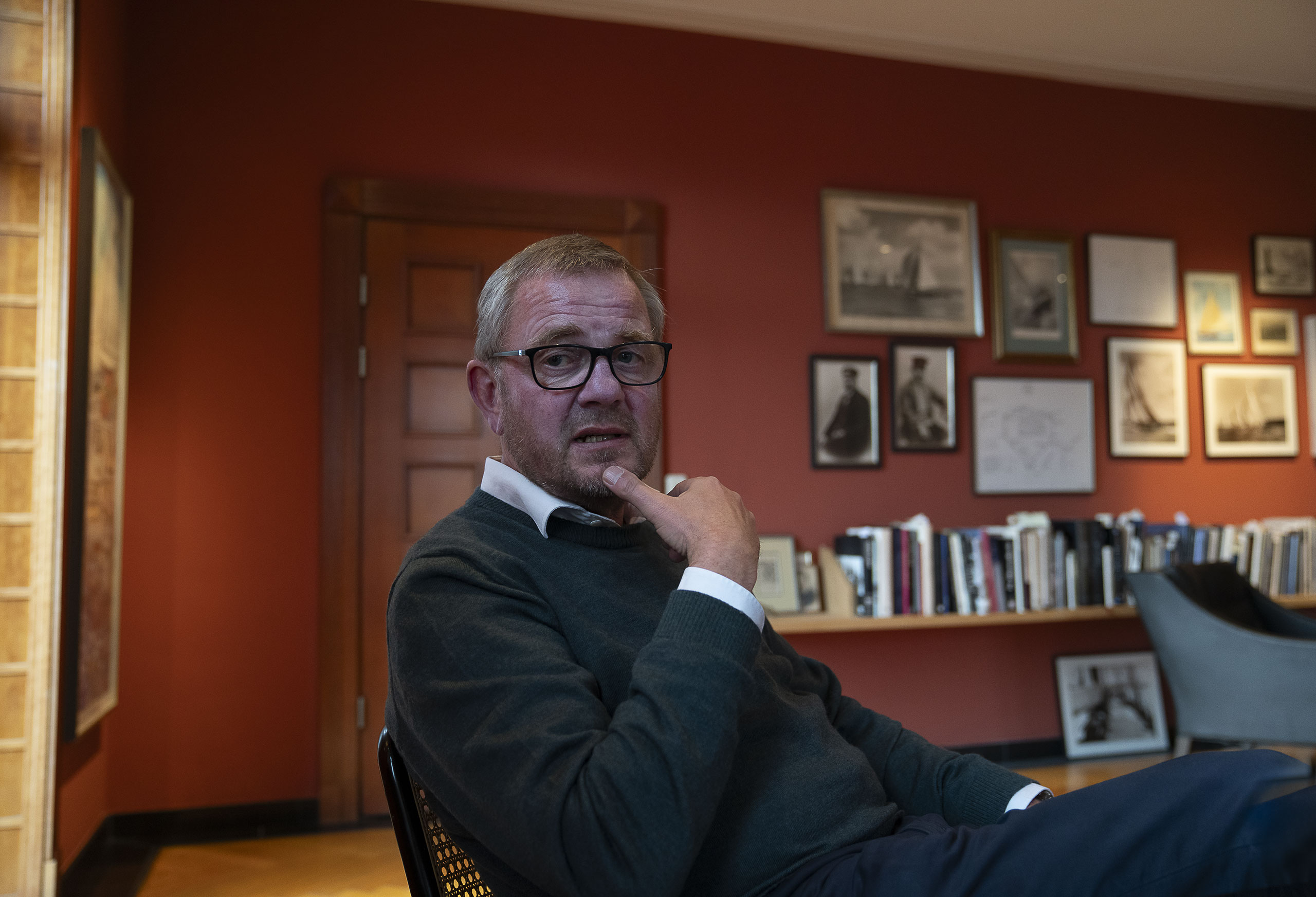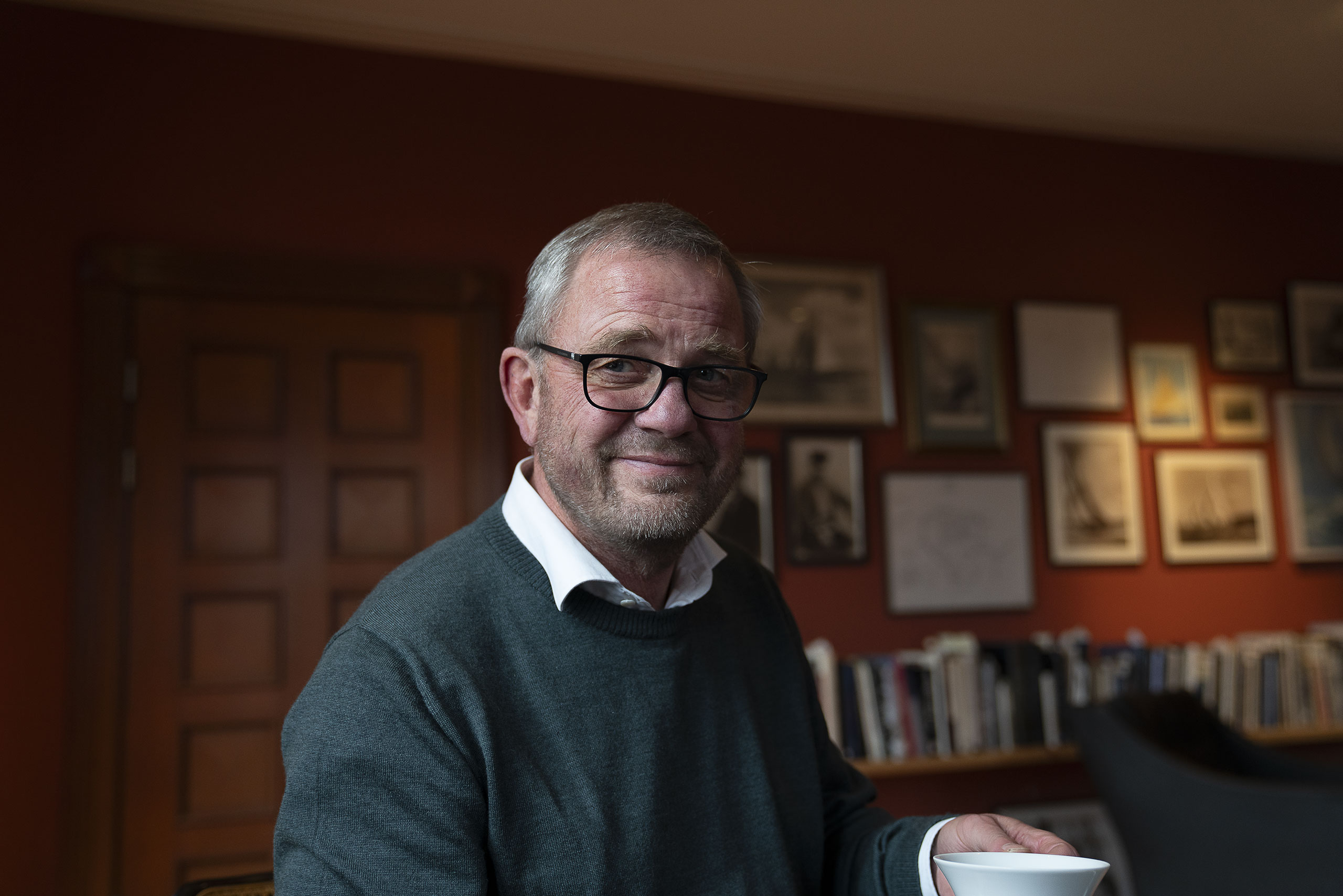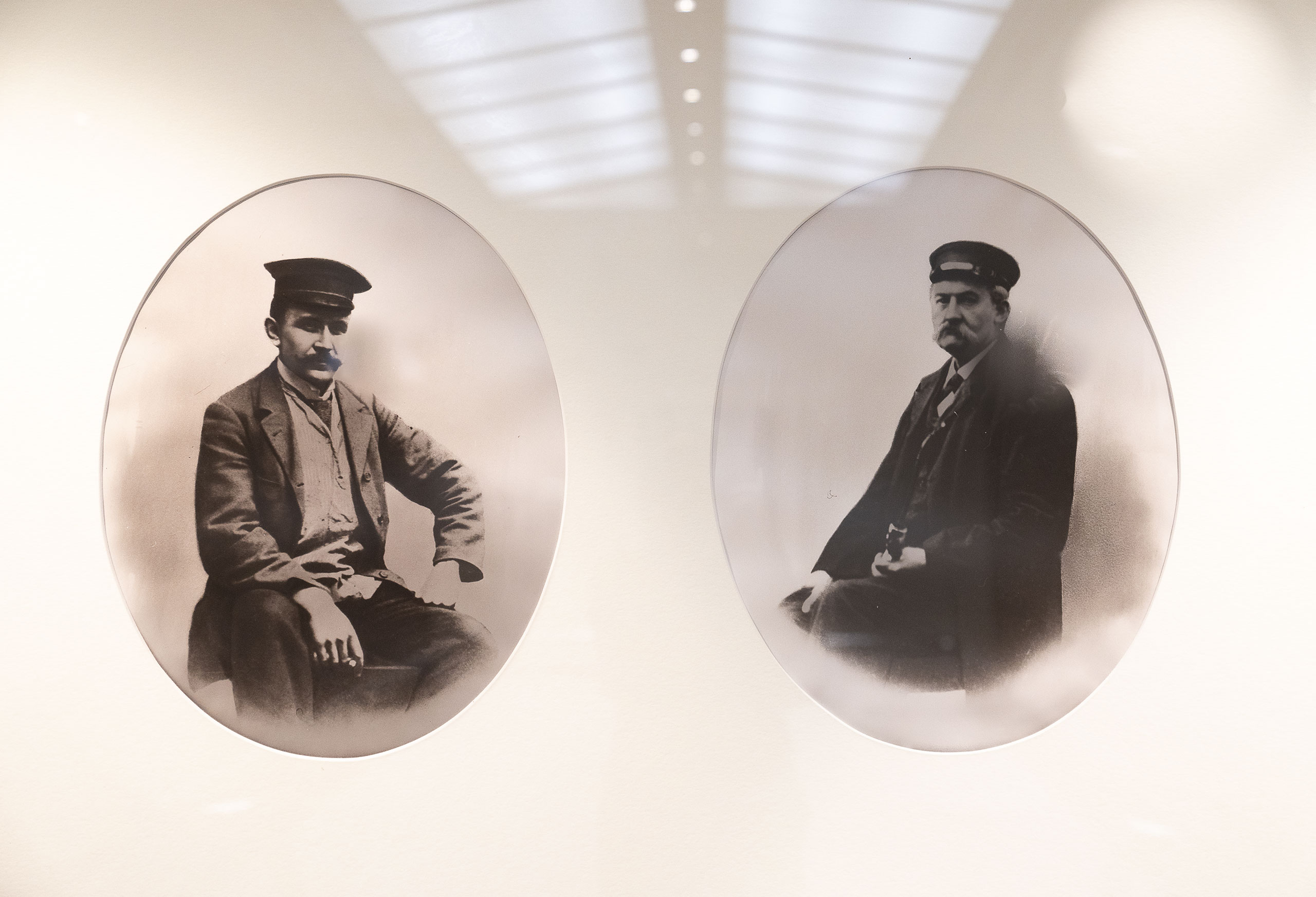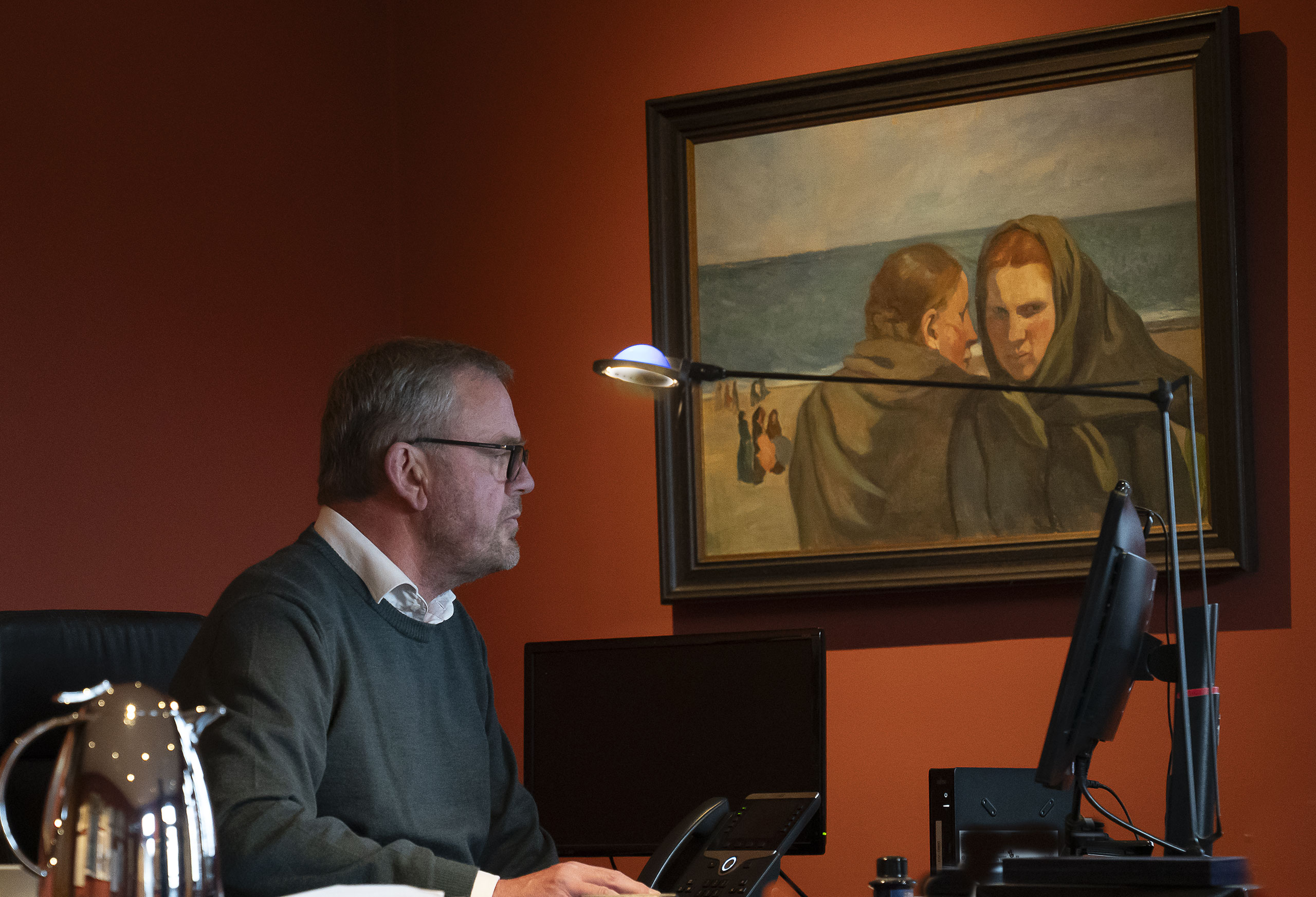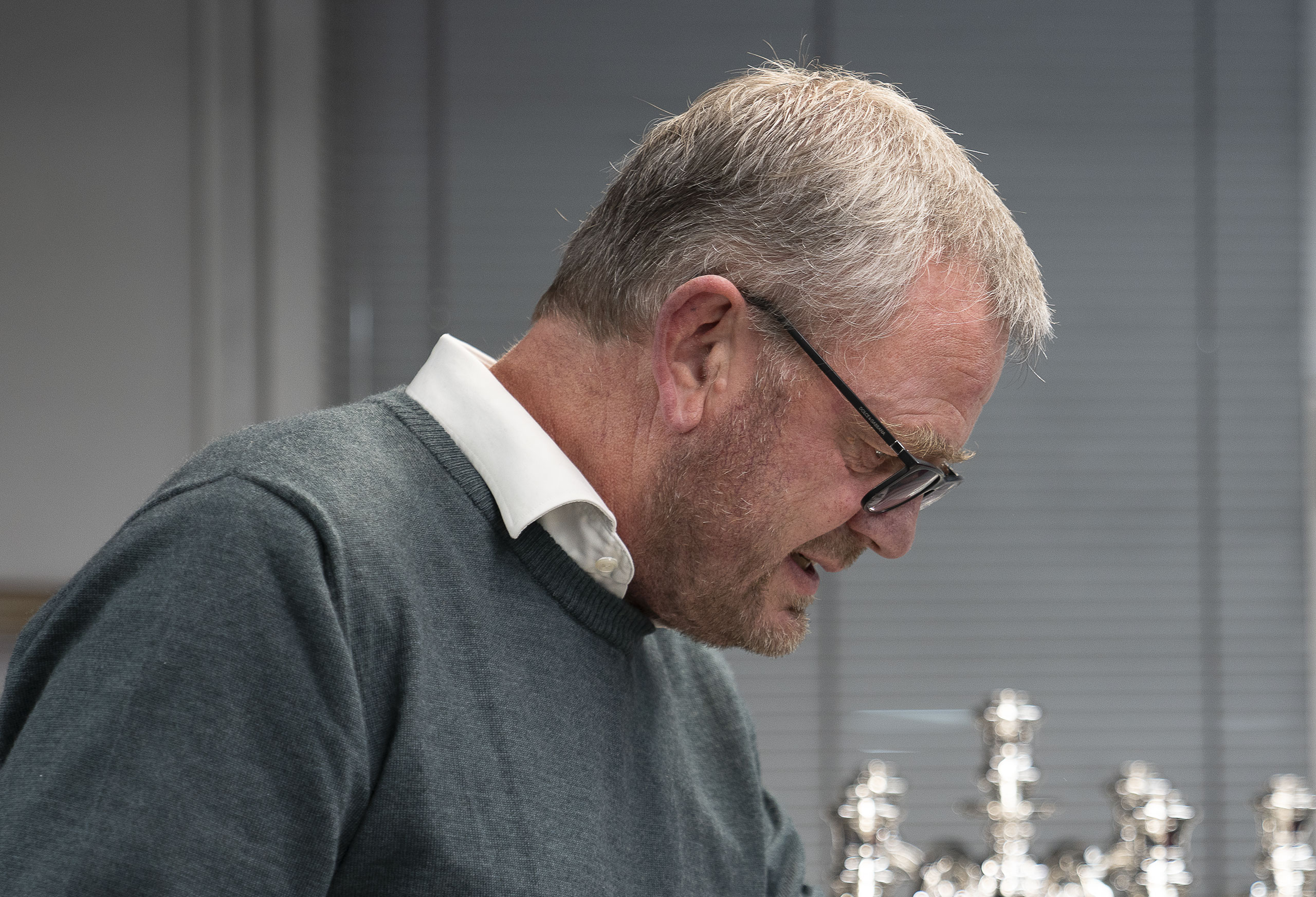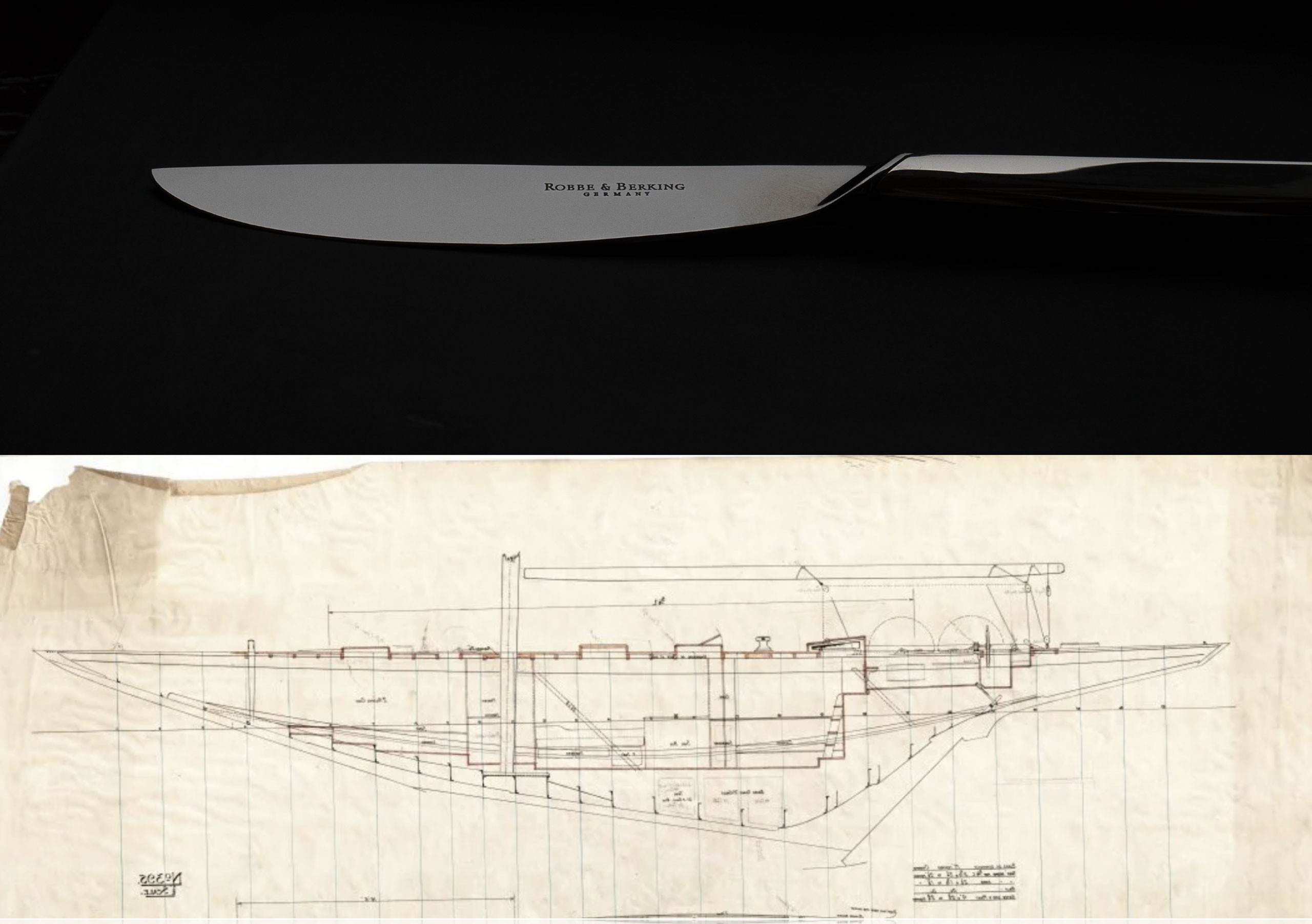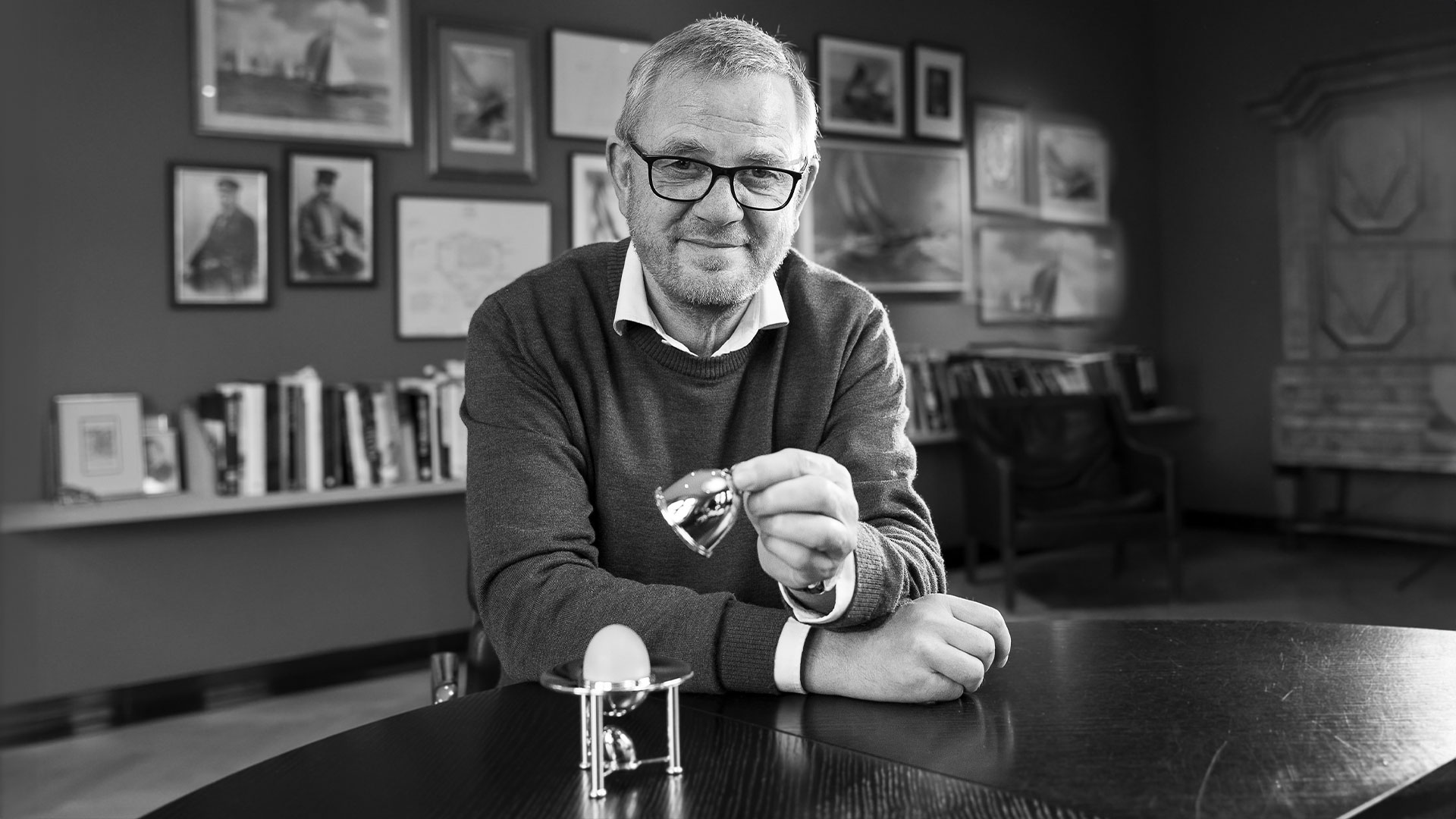Oliver Berking
Oliver Berking was born and raised in Flensburg, Germany.
After graduating, he joined Robbe & Berking, the silver cutlery manufacturer, which his great-great-grandfather had founded in 1874.
One word became his mission, manu factum – made by hand in Germany. Today, he runs the largest silver cutlery factory in the world and every single piece is still made exclusively by hand in Germany. He founded and manages a shipyard that has earned a worldwide reputation for its sailing boats.
He is editor-in-chief of the magazine “Goose” and in his Robbe & Berking Yachting Heritage Centre you will find a nautical museum, containing the most important collection of antiquarian yachting books. The total collection now comprises around 8500 volumes. Events like the “World Press Photo” exposition are held in the Centre.
Oliver, thank you for your time.
Thank you for your visit.
With pleasure. We’re here in your office, and I noticed the books are all about silver and the pictures are all about sailing. It’s typical for your situation. You have a shipyard on the one hand and this silver factory on the other. As I said before, I’m always worried about forgetting something. I want to ask you to tell me about yourself. What is important to you?
For me, it’s just silver and boats.
And the family, of course, is included, too. Family and my professional life: silver manufacturing and boats. I have these two small companies, one of which was founded by my great-great-grandfather in 1874. That’s the one we’re sitting in here now, the silver factory I have the pleasure to manage for the fifth generation. And the second is the shipyard, which I would say is a start-up. It’s only 15 years old, give or take. In my opinion, both companies do precisely the same thing. They are practising pure craftsmanship in the 21st century in Germany. This country is not known as a low-wage country. Products hand made from beautiful materials, silver up here, wood down there at the edge of the harbour where the shipyard is located. These are products so timeless, beautiful, and elegant that you can pass them on to the next generation with a clear conscience.
Actually in both companies we have the credo:
“We have to put a little more effort into everything than everyone else”
Of course, many other shipyards build boats, and many other companies are making cutlery or silver tea pots.
We never follow any temporary fashion. So, of course, I sometimes think, how can we make more sales? But I will never think about following any trend. I wouldn’t suddenly have a particular style just to match the lamps above the tables and say we’re now also making cutlery in this style, which wouldn’t work anyway because we never take anything out of the range again. So, all our customers, everyone who buys a silver spoon, gets a warranty card signed by me that guarantees subsequent purchases, which is a fundamental point. Because the product is bought and passed on to the children, and they pass it on to their grandchildren and so on. Nobody wants to be told at some point that the manufacturer has stopped producing the specific model. So, the aesthetic requirement is always the same; as you can see from the two cups from which we drink water our products have to be timeless. And beautiful, of course. And the same applies to the boats.
The aesthetic standards are very high, as I have seen and experienced here.
You have even managed to transfer the design language from boat building or to incorporate it into cutlery.
The combination is complete. I have these two themes in my professional head. When we launch new cutlery, I have boats in the other half of my head. So, we have a piece of cutlery called Riva. I think the spoon’s mouthpiece looks like a Riva’s elegant bow. We have cutlery that we have named 12. And it’s also stylistically based on the so-called twelve boats. These are the boats for which we are, I think you could almost say, famous for in our shipyard. They are world champions, these long, elegant yachts that were used to sail the America’s Cup Regatta from 1959 to 1987. And the cutlery looks like a Twelver in miniature, non-sailors can also appreciate the form.
I can’t entirely separate the two worlds.
Why do you think you have come so far? Are there certain traits, for example, that distinguish you, or do you have any inner values that you follow?
I don’t know if that’s the right word. I’m obsessed. These are two tiny little niche markets. I don’t know what percentage of all cutlery sold in Germany and many other countries worldwide comes from the Far East and is produced fully automatically in steel. And we’re sitting here, hammering out a beautiful spoon in 50 manual operations, which is more expensive than the fork or spoon just described. The target group is tiny, and the same applies to boats. Today’s boats are mostly made of plastic; the world sails the sea in plastic ships and in plastic vessels. We build them out of wood in the old-fashioned way like our ancestors did with a handle in hand. And they have to be timelessly beautiful. The twelve-oared boats I was talking about, two of them we built from scratch. When these ships entered a marina in 1939 in those years this kind of boat already existed, the sailors stood on the bridge with tears in their eyes and said: how beautiful. And when the same ship enters the same harbor today, the grandchildren stand there, have tears in their eyes, and say: how elegant and beautiful. So, here the trees don’t grow to the sky; These are two small companies, 160 employees work in the silver factory. That’s not so few, but we are not a big corporation. In the maritime world of Robbe&Berking, there are currently 40 of us, generally between 30 and 40, so we are a small craft business.
But it’s also a small target group. That means our customers live all over the world. Two years ago, we restored a boat which was brought to us by its owner from the American West Coast as deck cargo on a freighter. That made us proud. And now we are working on a vast boat that sailed from the Mediterranean to Flensburg. This is currently a four-week journey. So there are people who have this sense of beauty and can afford it. But they have to look for it all over the world. We sell emotions. The customers should always remain reasonable, but we get to their heart. We have to staircase them here.
You said that you were obsessed. We could also call you persistent and goal oriented.
There are better expressions, I know.
I’m just looking for characteristics to express your word in other terms. You are tenacious and also courageous. You founded this shipyard without having great prospects, as far as I know. And when you say the customer has to feel the joy and we sell emotions, we are talking about empathy.
Yes, that’s the case. And I want to preserve and save these crafts of the master silversmiths, of blacksmiths, and master boatbuilders.
Everybody is relocating their production sites. I started working at the silver factory in 1985. And even already back then, 98 per cent of the cutlery sold in Germany came from the Far East. It doesn’t have Far Eastern brand names. There are huge European brand names on them. Not all, but most of them do this. We’re not the only one’s manufacturing in Germany. But soon, we’ll be the only ones or one of very few. The cutlery is all manufactured somewhere else. Of course, we could do the same. We could also create the beautiful design and not have it made here at German wages and with German working hours, but somewhere else. But this is my fanaticism. No matter how tedious it is. I want to do it here. I want to go down and watch the polisher polishing and polish a bit more. And I want to talk to the boat builder and not just be a dealer who has a book of products with his name on. When the products come from some faraway country, they are just checked and then sold.
I want to do the whole process myself here, by hand. And that’s quite laborious. And everyone knows that it’s brutal. There are only a few people still doing it. I want to be the last.
We walked through the company this morning, and I noticed how you were greeted. And then I remembered the word: you are a patron.
I’ve never felt like that. But yes, I am the father of these two companies. I founded one and have worked for the other for almost 40 years. I don’t look that old, but it’s been that long.
‘Patron’ is the correct expression. You are the father of the companies and have family children. Do you give advice or recommendations?
If someone asks, you are so successful, what can I do? Have you any advice for me or recommendations?
Or, to your children for example.
So, to my employees, it is not a recommendation, but an order, you could almost say. We have to put a little more effort into everything than all the others. It starts with how you greet the customer on the phone or at the front door. It begins with how you wrap the parcel and ends with how the invoice is designed and looks.
And, of course, it primarily concerns the products. And that’s a brutal daily struggle. Because we do many things that the customer doesn’t even see at first glance, whether we polish the fork’s prongs or not. Who looks between the prongs? But our zinc group expects that. It has to be the best and last for generations, not just in terms of formal standards but also in the quality of the craftsmanship or perfection we always strive for. And, of course, I give my children all kinds of recommendations. They have grown up with the silver factory. And the shipyard has only been around for 15 years. So, most of my children have also grown up with it. And I now have a daughter who will one day represent the sixth generation in the silver factory here and support me. And other children who help me in the shipyard. So, yes, let’s see how it goes.
Do you have a utopia or a vision of an ideal future for all of us?
At the moment, you can’t look at the world and think about the future.
We had the World Press Photo Exhibition in our shipyard museum with press photos from the past year. And when you look at the pictures, you wonder what kind of world we live in. I do it like many other people. I put fictitious blinkers to my head.
In terms of business for the two companies, I know that there will always be people who want something excellent on the table. And who don’t go along with all the crap when they go to buy a boat. We all have so little time. And we always feel guilty anyway because you use your boat so rarely, twice or three times a year. But we always have a guilty conscience. But when you find the time, you don’t want to see the setting sun reflected in a plastic surface. But instead in a powdered, mahogany surface. And when you’re sitting with your family or business friends at the table, you want it to be nice with silver and not with cheap steel cutlery.
I’ve seen you talking to your daughter here and saw the respect you have for each other, obviously practiced in the family and here in the business.
Respect for each other is very important for me.
Okay, let’s see if we can continue to enjoy the beautiful objects; thank you for your time.
Yes, thank you.
Watch the full interview with Oliver Berking
